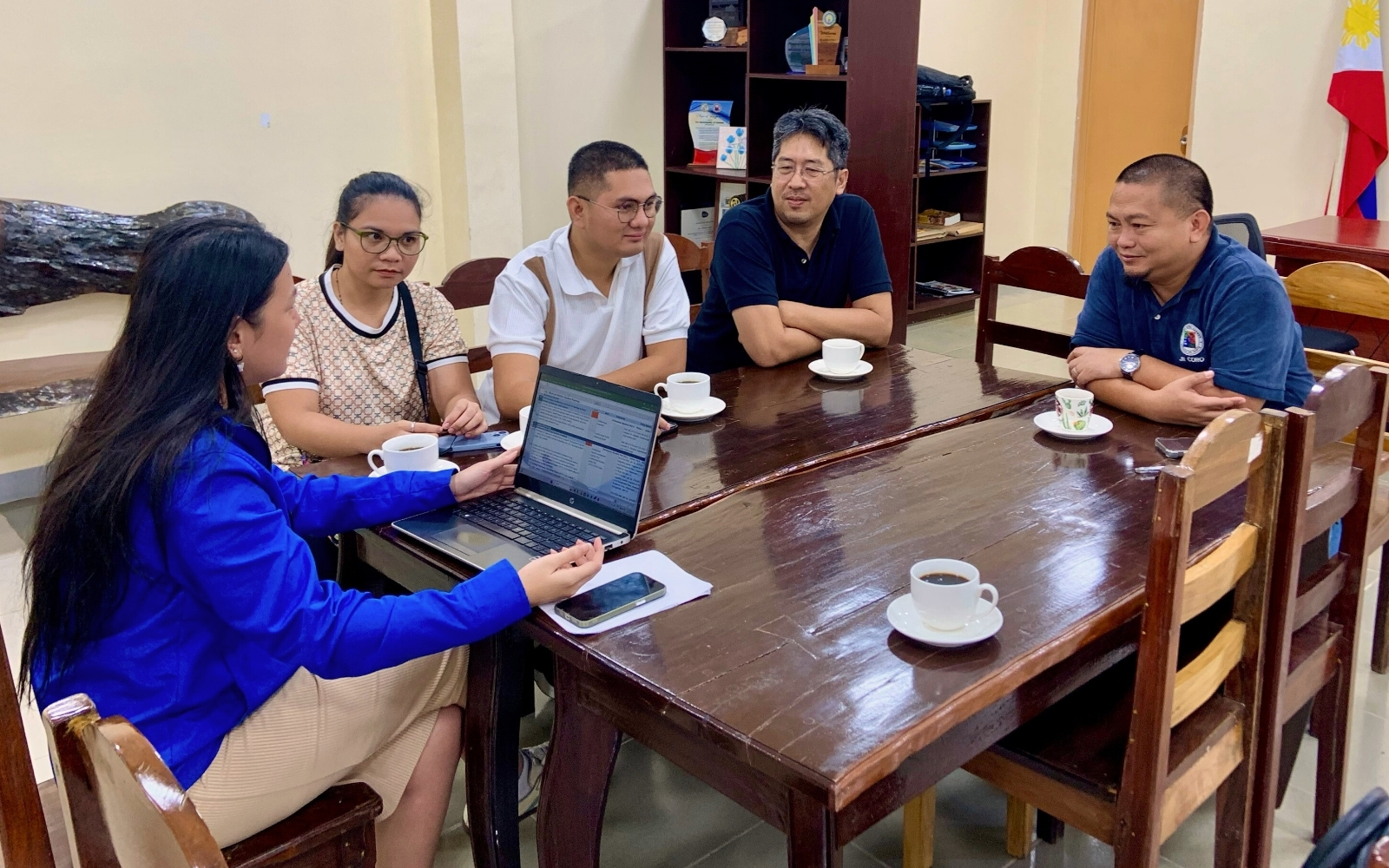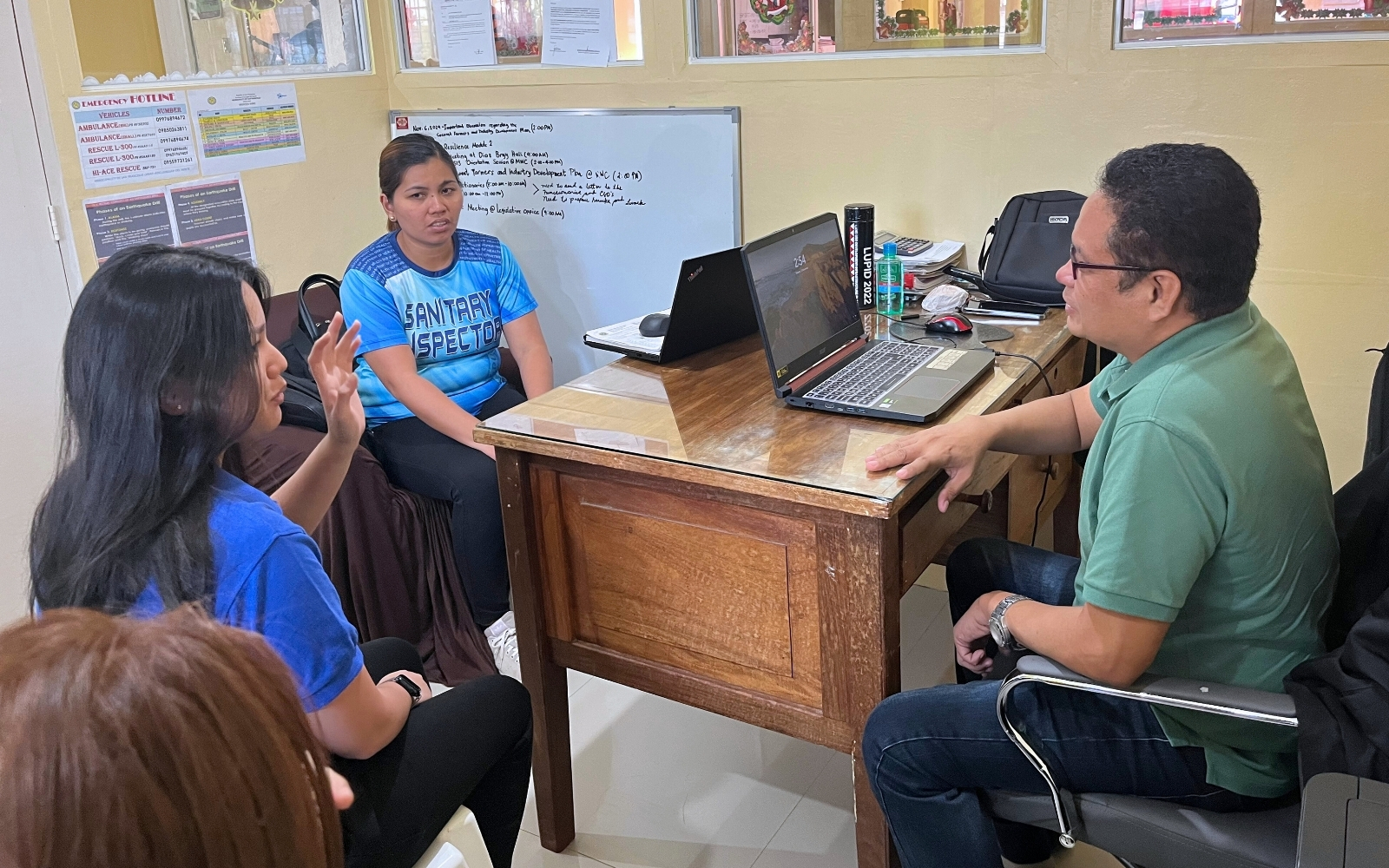Purpose Realized: Dr. Chay Cañezal’s Path in Public Healthcare
Motherhood brought Dr. Johnmae Charity “Chay” Cañezal to the Department of Health (DOH) from the clinical setting. When she made the change in November 2018, Dr. Cañezal was initially unsure about going into public health. Her perspective changed dramatically when she realized the more significant impact she could make in the public health sector. “Public health is very different from clinical practice. In the hospital, I was focused on individual patients. In public health, I work with communities, influencing policies and systems that affect thousands of lives,” she explains.
Personal circumstances also drove her transition. Pregnant and facing the challenges of long hospital shifts, Dr. Cañezal chose a position in the DOH regional office to balance her professional and family life. This decision opened her eyes to the critical importance of health systems development and multi-stakeholder collaboration, skills she would soon hone to champion the Universal Health Care (UHC) Law in the Philippines.
Taking On Regional Health Challenges
Like many regions in the country, Eastern Visayas faces high rates of maternal and child mortality and suffers from insufficient healthcare infrastructures and trained healthcare workers, among other challenges. Healthcare delivery has become a significant challenge due to the region’s geographical barriers and natural disasters. Comprising three main islands of Samar, Leyte, and Biliran, Eastern Visayas is used to the onslaught of typhoons.
Before the implementation of UHC, the region’s health indicators were alarming. Dr. Cañezal recalls, “There was a lack of policy and guidelines, and the health system was fragmented. Public health policies were not effectively implemented at the local level, which hindered our ability to provide consistent and quality care.”
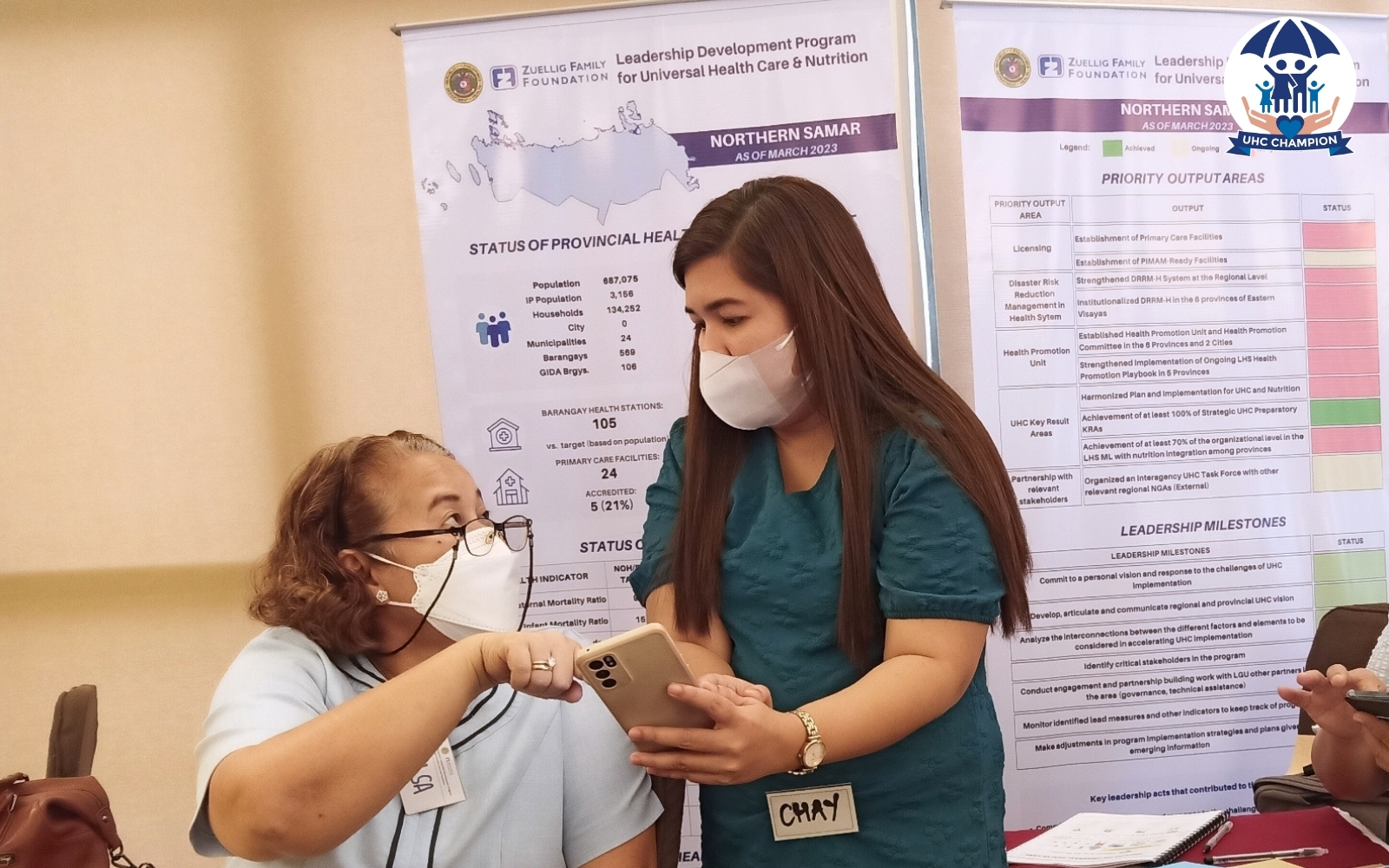
Dr. Cañezal soon realized that her post in the DOH as the Regional UHC Coordinator had a simple task—having each citizen feel the effects of UHC—but the road to realizing it is not easy at all. There are many factors to consider: from rallying awareness from their Local Chief Executives (LCEs) to going out of their comfort zone and doing presentations for students about to enter the healthcare sector, whether private or public. The challenges were multifaceted and riddled with bureaucratic hurdles, resource constraints, and resistance to change.
Bringing All the Elements Together
One of the turning points in Dr. Cañezal’s work came with the engagement of the different stakeholders and the partnership between the DOH and the Zuellig Family Foundation (ZFF). This collaboration aimed to strengthen health leadership and governance, improve service delivery, and ensure sustainable health financing. Dr. Cañezal was at the forefront of this partnership, leveraging ZFF’s programs to address the region’s unique health challenges.
ZFF’s Bayang Malusog initiative, which focused on responsive leadership, improved health service delivery, and a competent health workforce, helped enhance the region’s capacity to provide technical assistance to provinces to address challenges in health governance, primary care, and health systems integration. “The Bayang Malusog program was a game-changer. It brought about innovations in service delivery and workforce competence, which were critical for our region,” Dr. Cañezal states.
Sustaining Success and Motivation
Despite these wins, fully implementing UHC is still an uphill battle. Engaging LCEs and ensuring policy continuity amid political changes remain significant hurdles.
What keeps her motivated in the face of these challenges? “The common good. Seeing the impact of our work in the community, especially the most vulnerable, keeps me going. It’s about making a difference not just for one person, but for entire communities,” she shares. Dr. Cañezal also emphasizes the role of community participation in the success of the UHC program. Personal anecdotes, such as witnessing the relief of families who no longer face financial ruin due to hospital bills, fuel her passion and resilience. She encourages everyone to play their part, no matter how small, in ensuring the success of the UHC.
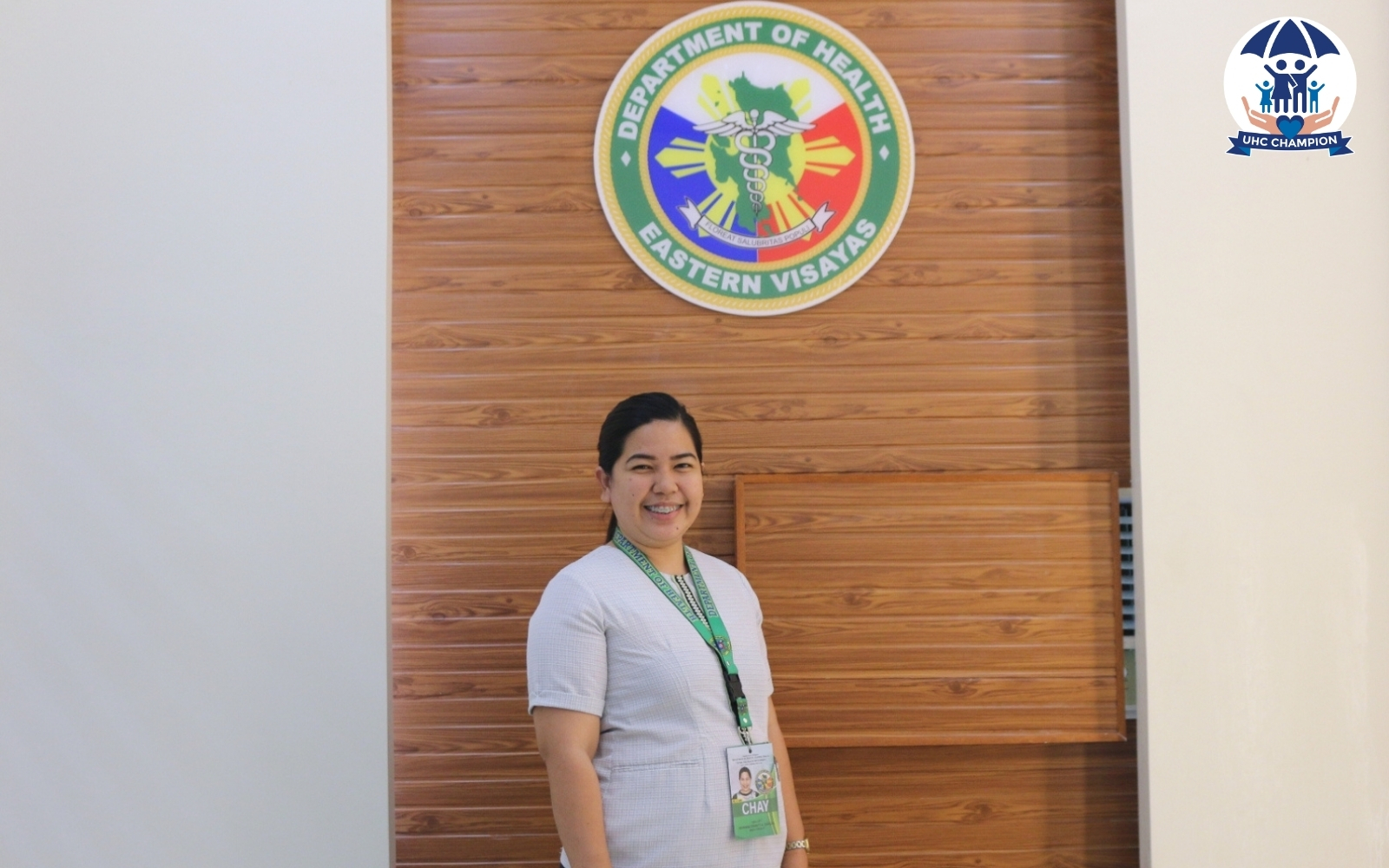
Looking ahead, Dr. Cañezal is optimistic about the future of UHC in Eastern Visayas. She envisions a health system where policies are not just written on paper, but felt at the community level. Upcoming initiatives include strengthening disaster resilience in health services, enhancing healthcare workers’ skills, and expanding health programs to reach more remote areas. “Our goal is to make health programs sustainable and deeply integrated into the community fabric,” she says.
Her legacy, she hopes, will be one of tangible change and lasting impact. “By next year, I hope the tools and systems the region helped put in place will make a noticeable difference. It’s not just about lessening the burden on healthcare workers but ensuring that every community member feels the benefits of UHC,” Dr. Cañezal says.
The region, through Dr. Chay Cañezal and the Easter Visayas UHC regional team’s dedication and collaborative efforts with the Zuellig Family Foundation, is witnessing a health systems transformation that promises better health outcomes for all. Their hard work and determination will hopefully inspire others to take on the mantle and work with them to bring about lasting change.
Emilio Galangue: Empowering Youth in Basey, Samar
Emilio Galangue, the newly elected Sangguniang Kabataan (SK) Chairperson of Barangay Mabini, Basey, Samar, did not waste time making a difference. Shortly after his induction, he joined other SK leaders in the Municipal Expanded Youth Leadership and Governance Program (MEYLGP) Module 1. This training, organized by the Zuellig Family Foundation (ZFF) under the Joint Programme on Accelerating the Reduction of Adolescent Pregnancy in Southern Leyte and Samar (JPARAP) with UNFPA, focused on building leadership skills and celebrating progress in adolescent health and local governance over the past year.
Inspired by the training, Emilio saw an urgent need to focus on the holistic development of adolescents in his community.
Launching the Adolescent Health and Development Program
Motivated by what he learned, Emilio launched the Adolescent Health and Development Program (AHDP) as his flagship project. The program aims to empower teens with the knowledge and skills to make informed decisions about their health and well-being. It goes beyond physical health, tackling emotional, mental, and social development.
The AHDP includes interactive activities including lectures, audio-visual presentations, and role-playing, all designed to engage young participants. Experts such as doctors, youth advocates, and social workers led the sessions, ensuring a well-rounded approach. A standout feature was the program’s focus on mental health, encouraging open discussions about challenges and fostering a supportive environment.
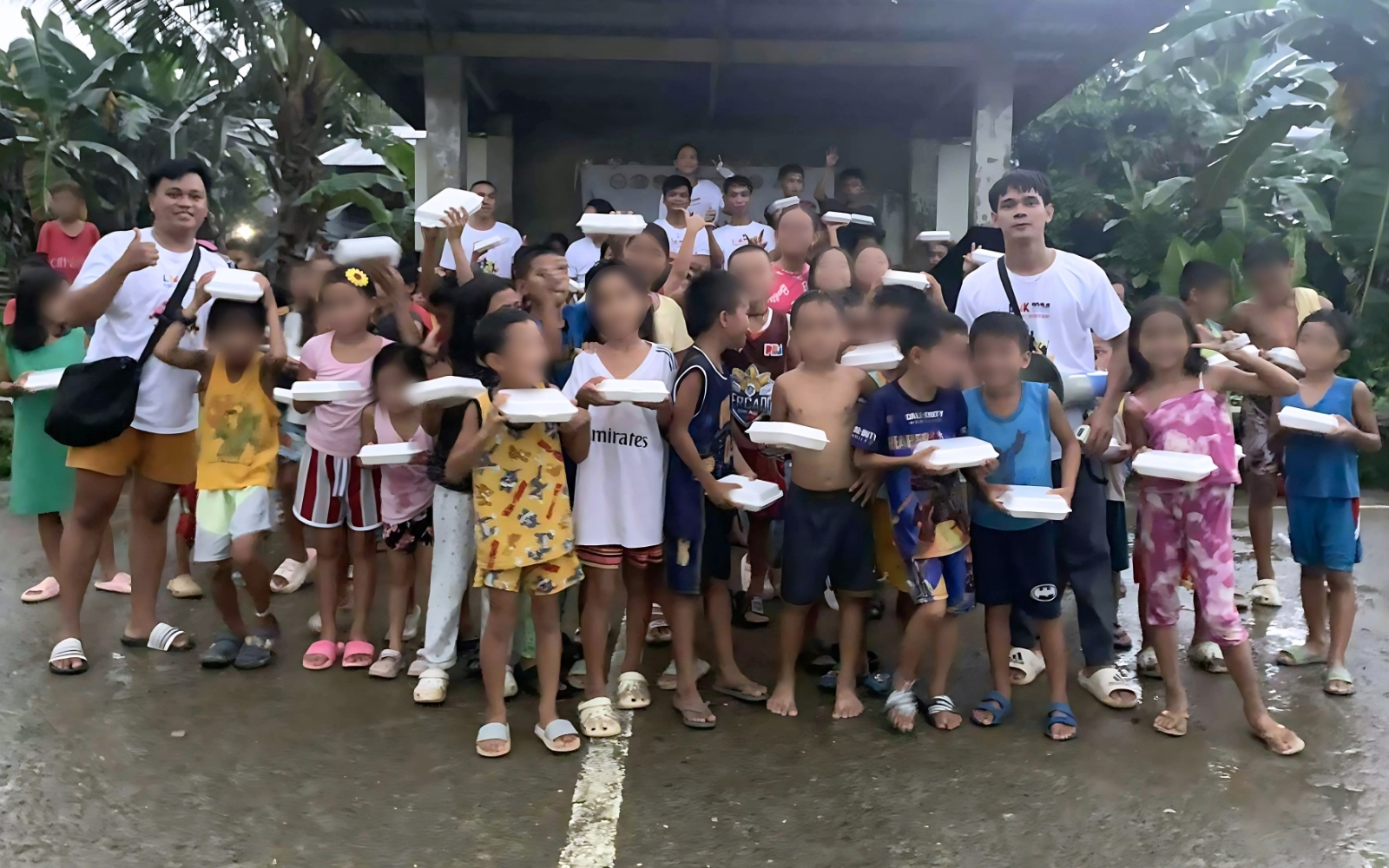
Creating a Ripple Effect
The program quickly gained support, with enthusiastic participation from the youth and praise from parents and local leaders. Recognizing its value, Emilio and his team included the AHDP in the barangay’s annual budget, ensuring its continuation.
Emilio’s leadership inspired other SK Chairpersons in Basey to replicate the initiative, spreading its positive impact across the municipality.
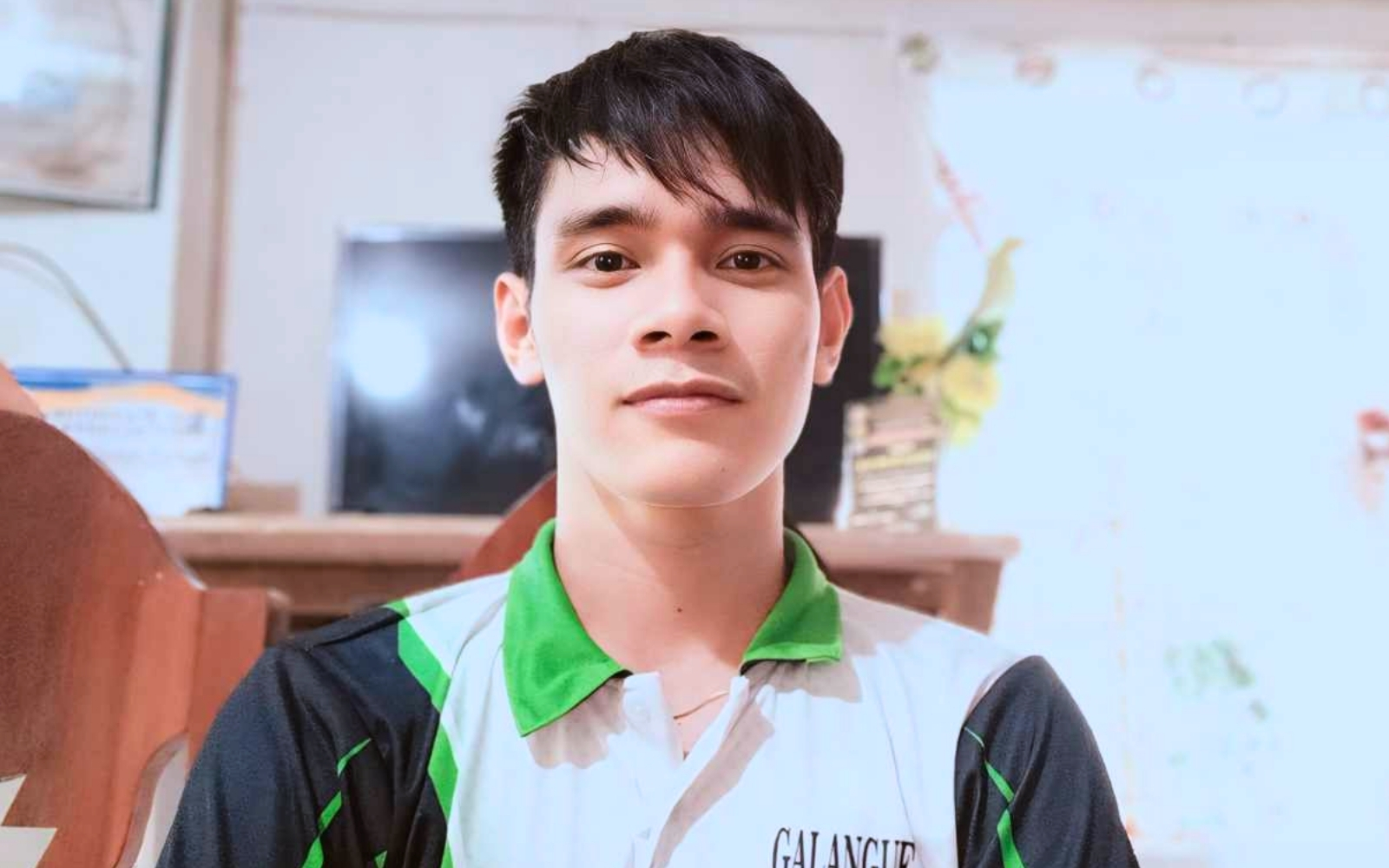
A Leader Who Inspires Change
Emilio’s efforts show how youth leaders can drive meaningful change. By addressing adolescent needs, he is not only fulfilling his role as SK Chairperson but also building a healthier, more informed, and resilient community.
For Barangay Mabini, Emilio is more than a youth leader—he is a symbol of hope and progress, proving that with determination and vision, even limited resources can create lasting change.
Learning Milestones in Tipo-Tipo: Advancing Nutrition Systems through ZFF FaStR and Pook Malusog Programs
On November 12, 2024, the small but determined community of Tipo-Tipo in Basilan welcomed back-to-back field monitoring activities. The day was dedicated to evaluating the progress of two key health initiatives piloted in the area: the Family Stunting Reduction (FaStR) Program and the Pook Malusog Dashboard. Both programs are part of ongoing efforts by the Provincial Government of Basilan, supported by the Zuellig Family Foundation.
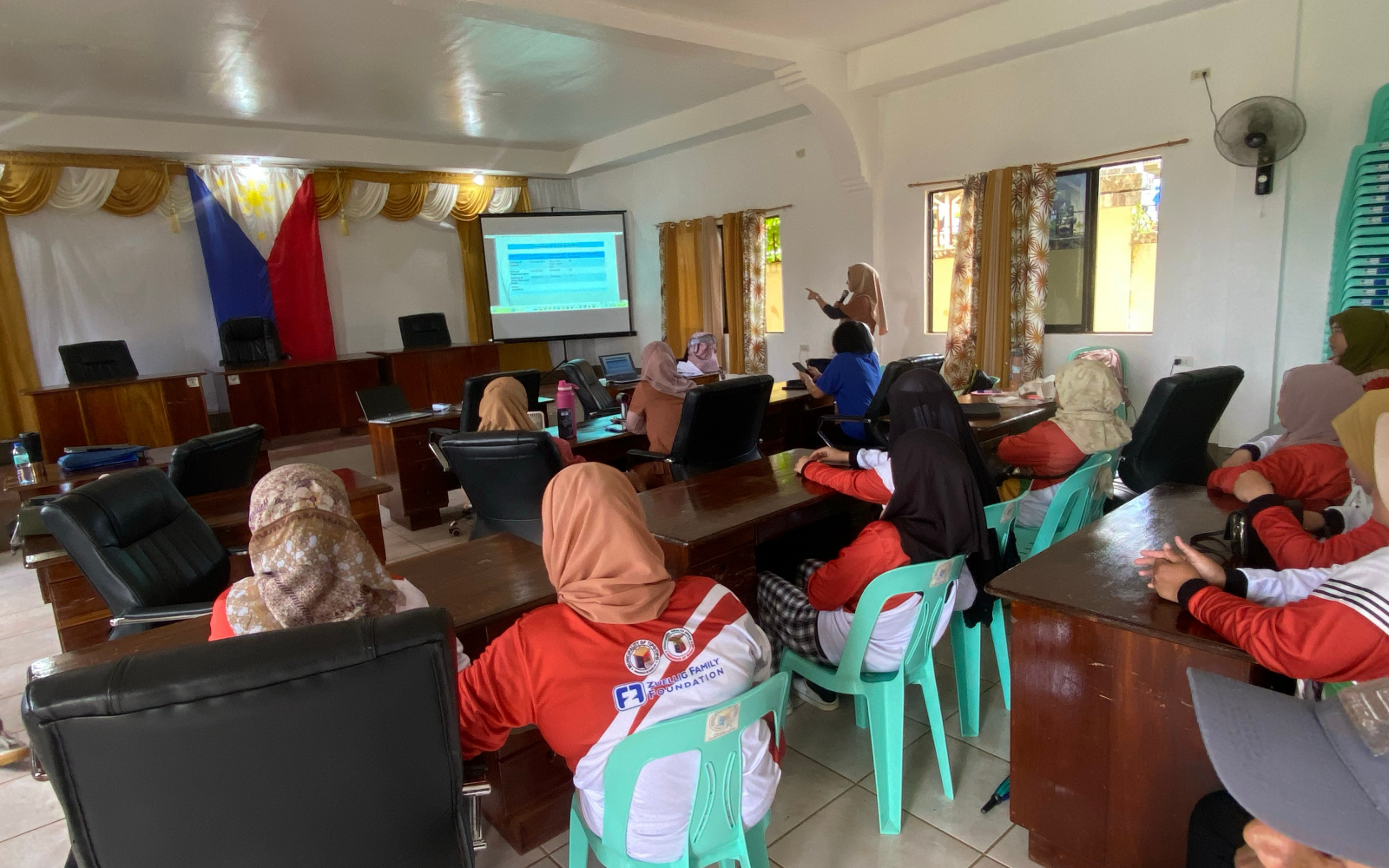
What is FaStR? A Program Review
The day started with a review of the FaStR Program. The program empowers families to adopt health and nutrition practices critical for reducing stunting among children in the First 1,000 Days (F1KD). Through education, tools, and regular monitoring, FaStR equips families to make sustainable changes that improve overall well-being. Barangay health workers and municipal health staff shared updates on the program’s progress.
While changing family behaviors remains a challenge, there were inspiring stories of success. More families are now attending prenatal checkups and getting their children vaccinated—a big win in a community where traditional beliefs can often make change difficult. These small victories reflect a shift towards healthier practices and greater trust in health services.
Dr. Nur Khan Istarul, Municipal Health Officer, highlighted the need to integrate FaStR into existing local programs for sustainability. He mentioned plans to merge FaStR with Adopt-a-SAM (Severe Acute Malnutrition), a local health initiative, and to propose new policies that would ensure consistent budget support. The idea is to offer incentives for families who show significant improvement in their children’s health, as a way to encourage others to follow suit.
Harnessing Technology for Health Information: Pook Malusog Dashboard Assessment
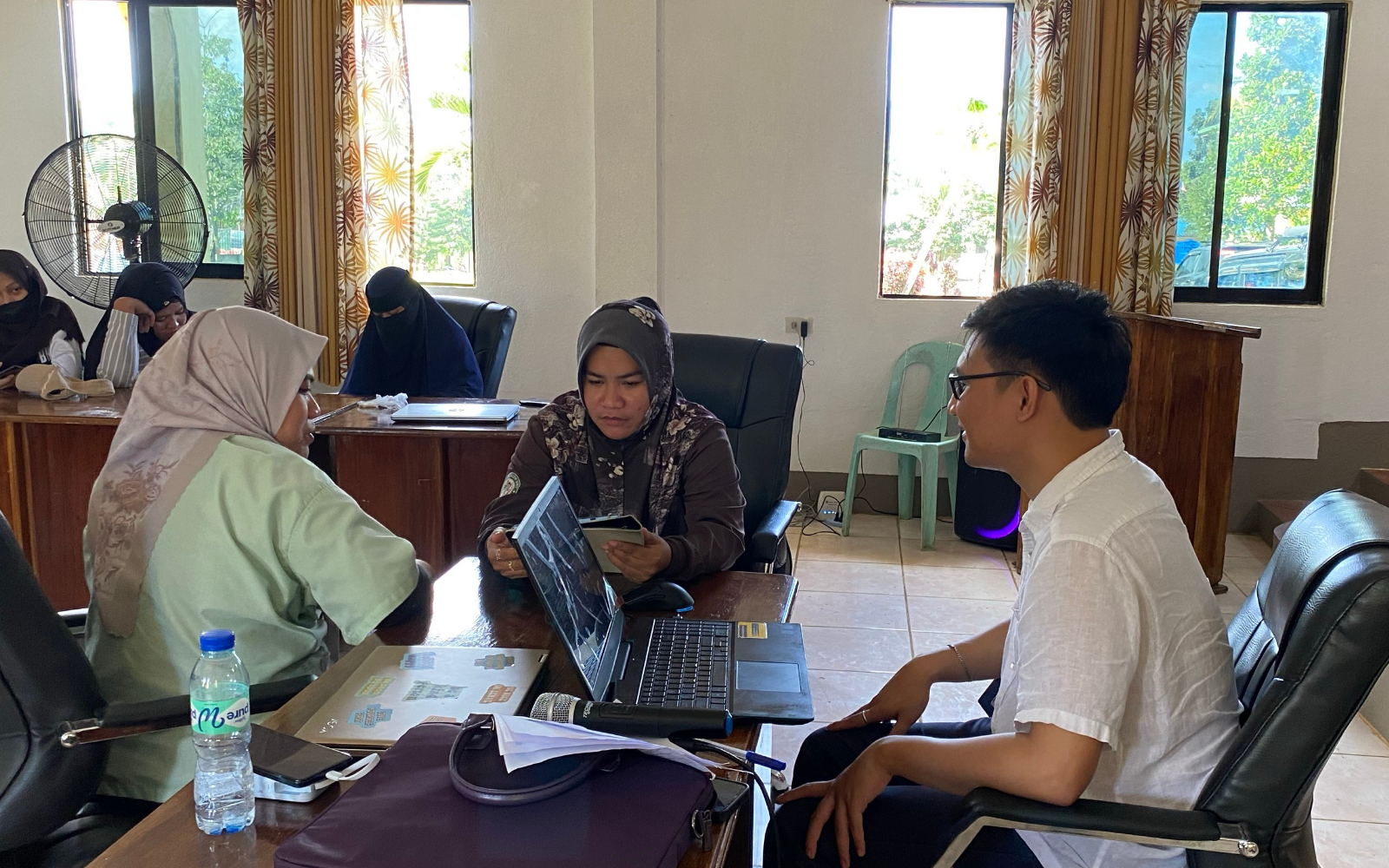
In the afternoon, attention turned to the Pook Malusog Dashboard, a digital tool designed to make health data collection and monitoring easier. The Dashboard streamlines data collection and analysis for child, maternal, and adolescent health, focusing on the F1KD period. It enables healthcare workers to efficiently track health trends and access actionable insights to improve services. The session was attended by Local Government Unit (LGU) staff, Rural Health Unit (RHU) workers, and a group of newly trained Barangay Health Workers (BHWs).
Participants shared their experience with the dashboard’s pilot run. They noted that the tool had streamlined field visits, especially for tracking pregnant teenagers, thanks to an updated master list. The team expressed readiness to expand the dashboard’s use to two more barangays, planning to train additional health workers for this rollout.
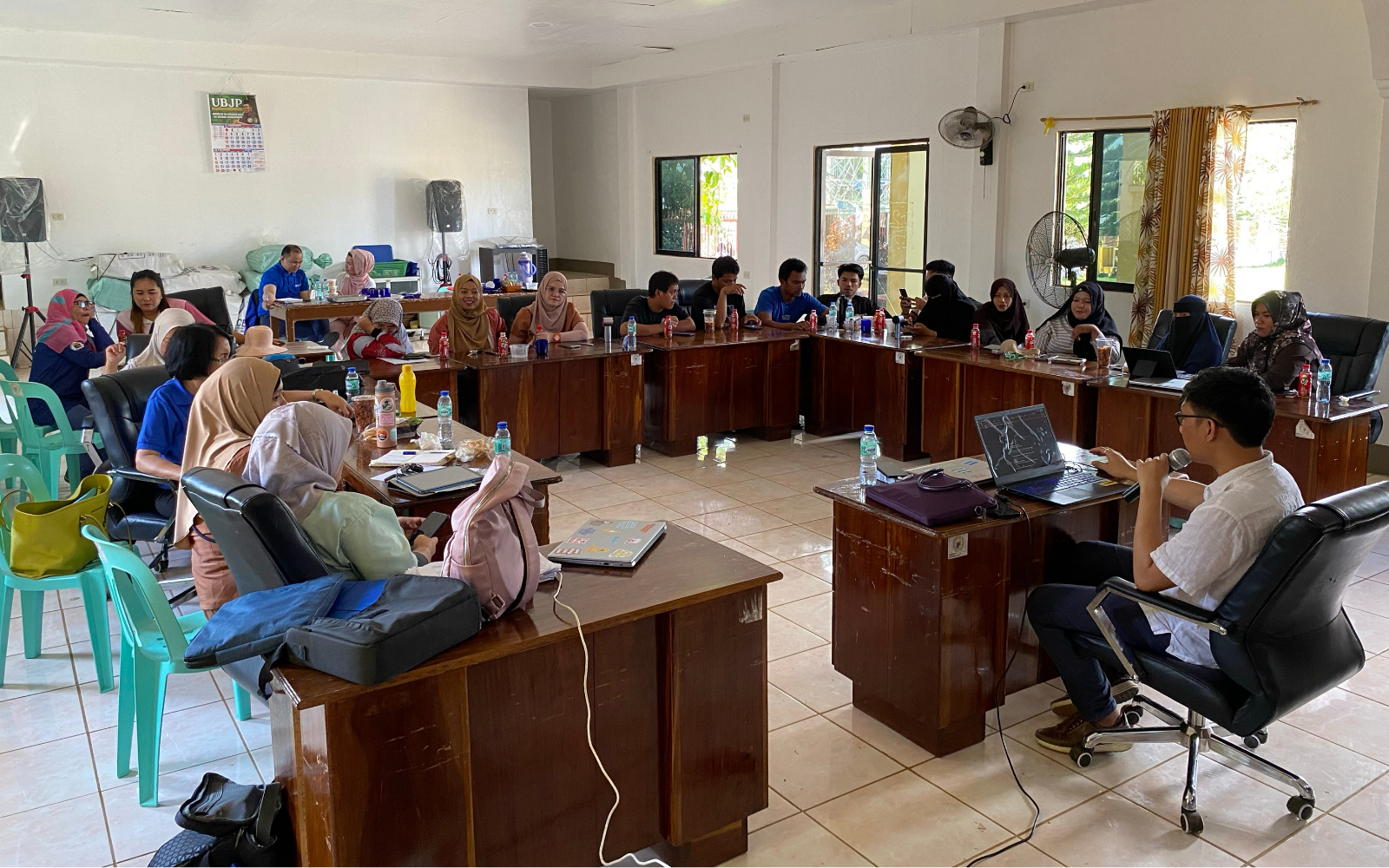
Tipo-Tipo’s commitment to piloting both the FaStR Program and Pook Malusog Dashboard showcases the community’s drive to improve health outcomes. The lessons learned from these monitoring activities will be crucial as the LGU and partners look to scale up these projects. By integrating these initiatives into existing health services, Tipo-Tipo aims to build a stronger, more resilient health system that benefits all its residents.
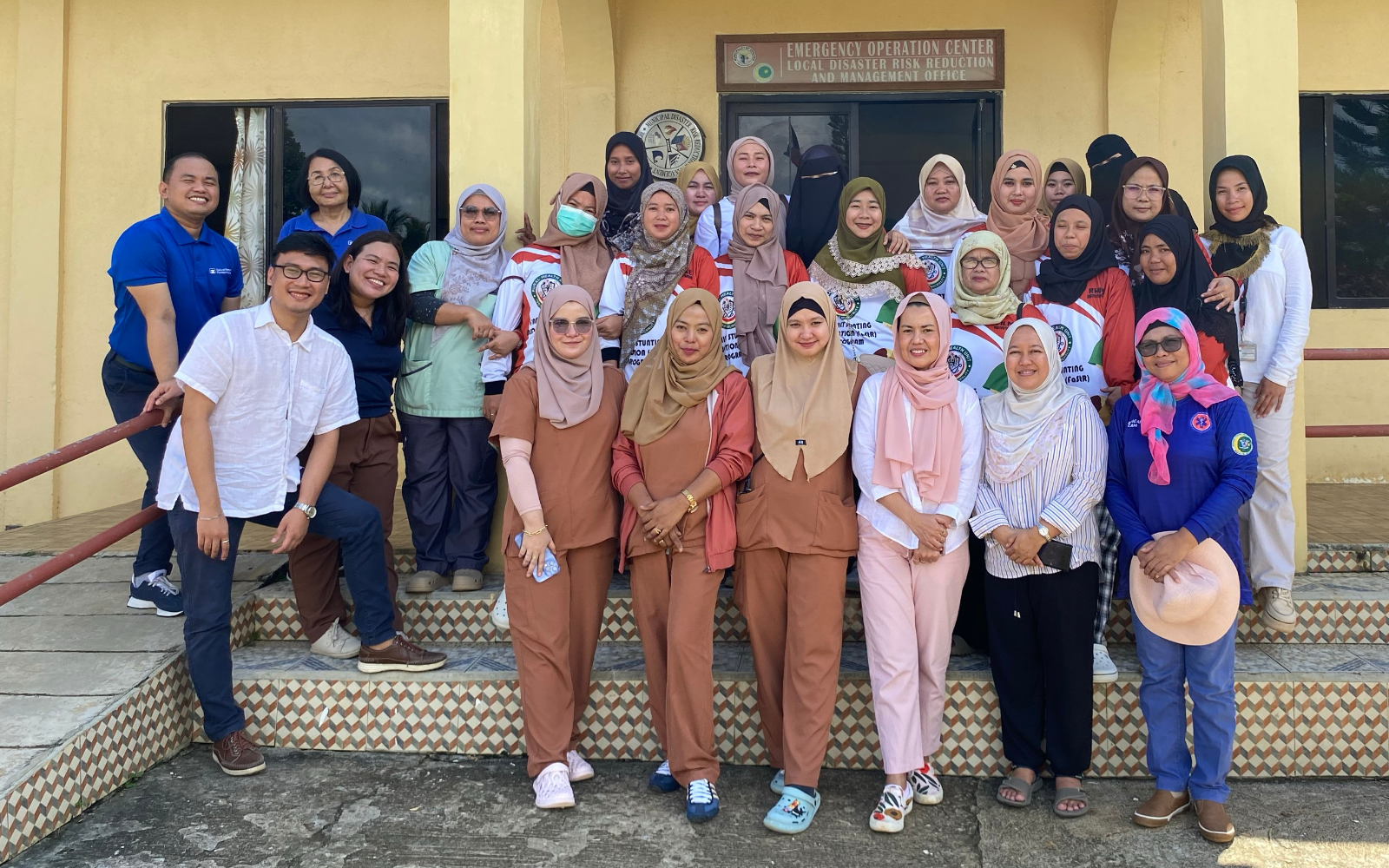
Mayor Zyrex Pacquiao: Teamwork Makes the Dream Work
The name Pacquiao comes with great responsibility. As Mayor Zyrex Pacquiao, cousin of world boxing champion and former Senator Manny Pacquiao, steps up to the challenge of transforming a municipality where most households live below the poverty line, he faces a different kind of battle.
At just 27, the young leader of Maasim in Sarangani Province knows the struggles of his hometown well. Despite his famous last name, Mayor Zyrex led a life far removed from the luxurious lifestyle of his champion cousin.
“We got to a point where we could only afford two meals a day,” shared Mayor Zyrex. “I helped my father farm and took on odd jobs just to get food on the table. When we moved back to Maasim, things got tougher. My mom was pregnant, and we lacked basic clothing. I had to learn to fish and find ways to survive.”
Maasim, with its 16 barangays, is a diverse community of Christians, Indigenous Peoples, and Muslims. It was officially established as a municipality on March 16, 1992, through Republic Act 7228. Despite its young history, Maasim quickly developed into an industrial hub, hosting companies like Sarangani Energy Corporation and Pantua Steel Manufacturing Company. However, progress did not necessarily make everyone’s life better. According to the 2017 Community-Based Monitoring Survey (CBMS), nearly 60% of its 12,999 households live below the poverty threshold. Nomoh, Amsipit, and Kanalo are among the barangays with the highest poverty rates.
These challenges were a backdrop to Mayor Zyrex’s childhood. When he was 9, his parents separated, and as the eldest of five, he had to take on more responsibilities, helping his father in the rice fields to meet their basic needs. “My past was so difficult that I never imagined I would become a mayor today,” he admitted.
Despite hardships, he found a way to complete his education, receiving help from friends and later joining Senator Manny Pacquiao’s scholarship program. He graduated as a dean’s lister with a degree in Elementary Education in 2012. His leadership journey began when his cousin recognized his potential and encouraged him to run for Municipal Councillor in 2016. By 25, he was elected Mayor of Maasim.
Tackling Malnutrition: A Deep Dive
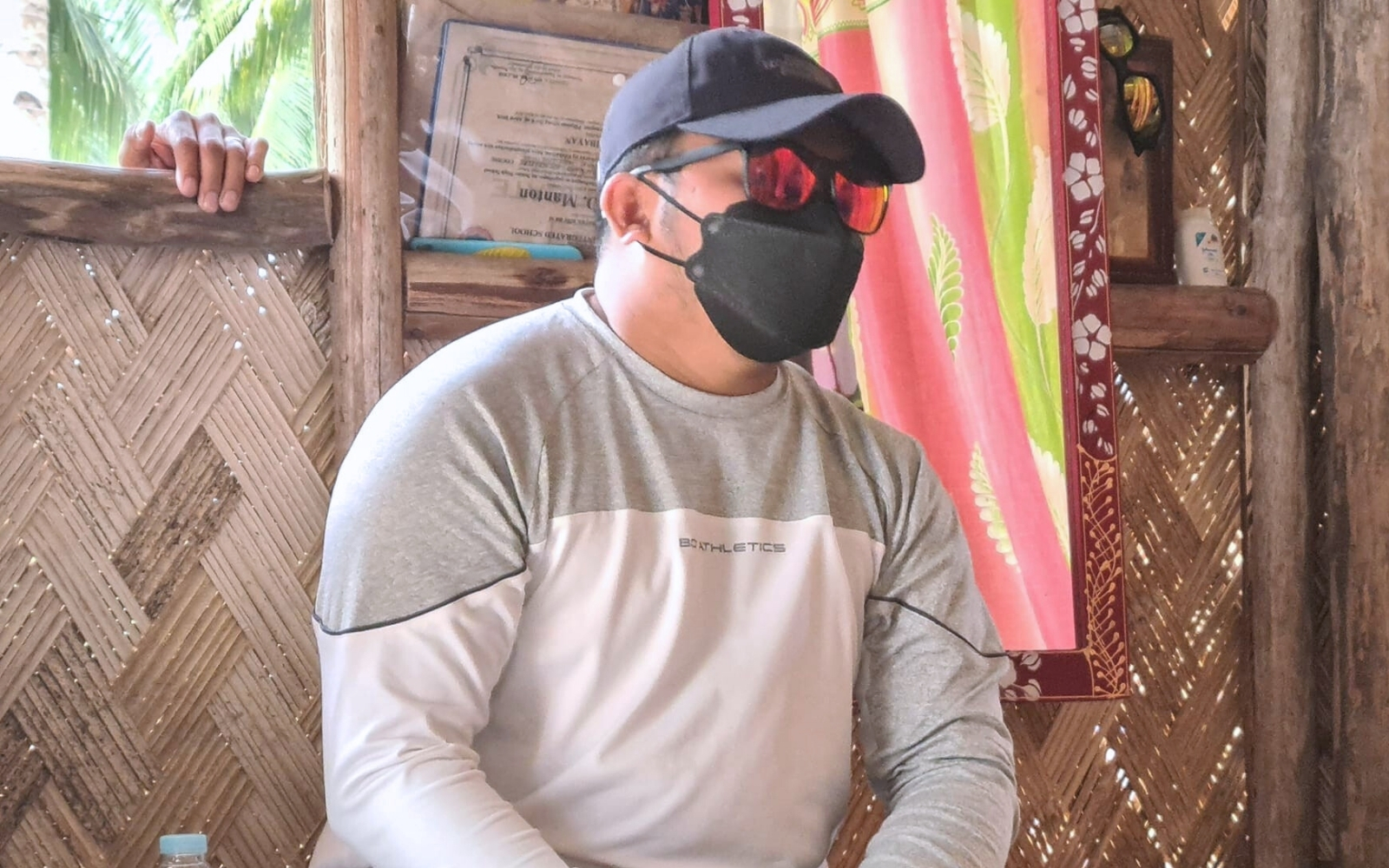
In his second term, Mayor Zyrex faced the stark reality of malnutrition in Maasim. With data showing high rates of stunting and wasting, he sought solutions through the Zuellig Family Foundation (ZFF)’s Municipal Nutrition Governance Program (MNGP). Recognizing the need for systemic change, he collaborated with ZFF to build a nutrition core team comprising key officials from health, social welfare, and agriculture sectors. This team supported the development of Maasim’s F1KD (First 1,000 Days) Municipal Roadmap for Nutrition.
A breakthrough came during a Deep Dive Activity facilitated by ZFF in Barangay Lumatil, one of the areas with the highest malnutrition rates. Mayor Zyrex discovered the harsh reality faced by families like that of 18-month-old Angeline, who was severely stunted. Her household of 14 struggled to survive on a meager income of P3,000 per month. This experience was an eye-opener for the mayor, who had previously believed that malnutrition was mainly due to apathy or “behavioral problems” in the community. The deep dive helped him realize the need for greater support and education on available resources.
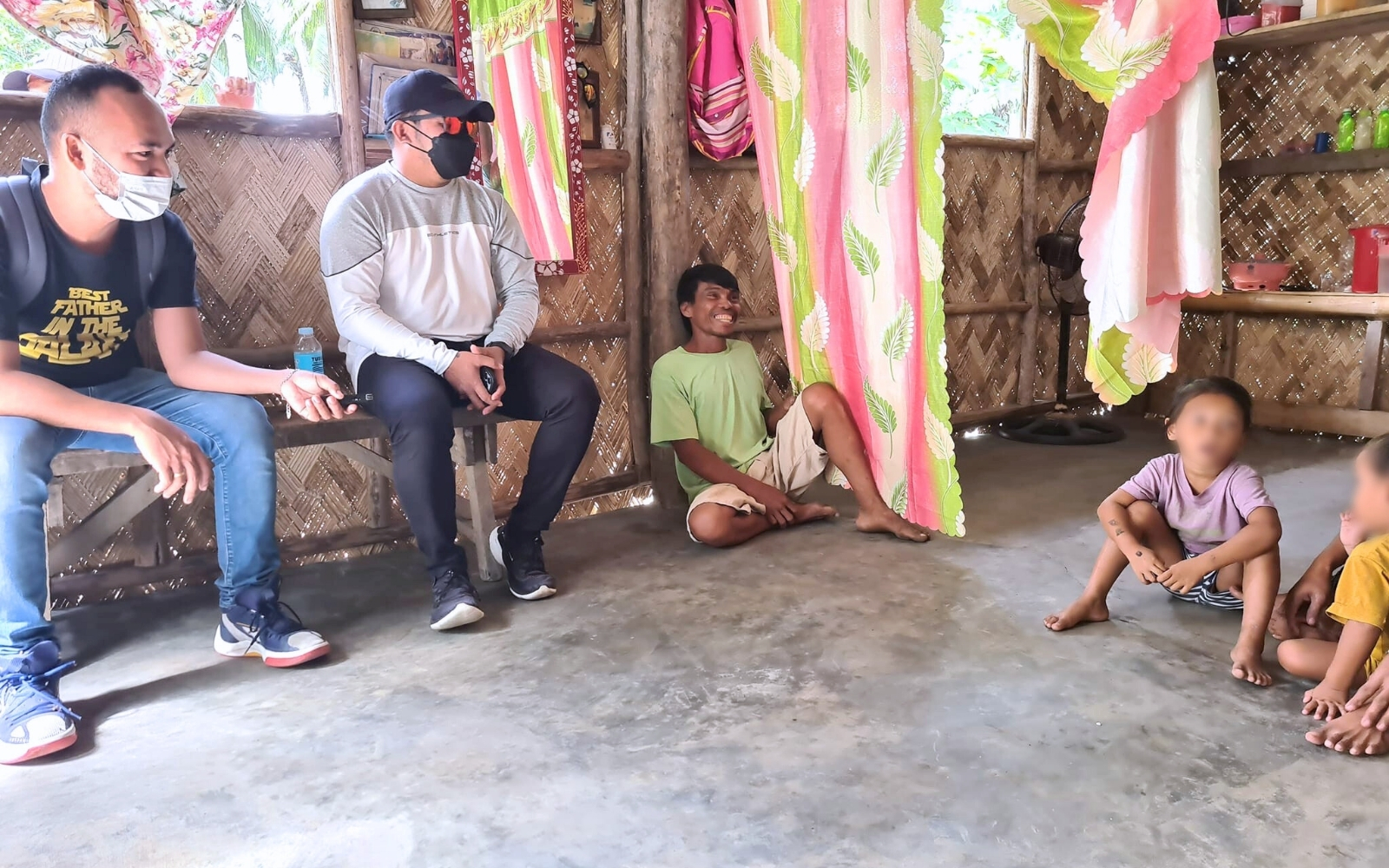
Turning Vision into Reality
Determined to address food insecurity and malnutrition, Mayor Zyrex partnered with the Seaoil Foundation Inc. to launch the ‘Tugon sa Gutom’ program in six high-prevalence barangays. The program focused on increasing access to nutritious food by teaching households how to grow vegetable gardens. Despite the abundance of agricultural production in Maasim, food poverty remained high because many farmers were forced to sell their produce at low prices to middlemen. In response, Mayor Zyrex established a food hub near the municipal hall, where farmers could sell directly to consumers at fair prices, helping maximize their profits and provide fresh produce to the community.
Mayor Zyrex also integrated food security measures into all municipal programs and secured funding through a new Municipal Ordinance on Food Security. This led to the creation of a Food Security Task Force and the regular Farmer’s Market Day, boosting local agri-fishery production and improving household access to nutritious foods.
The efforts paid off. A mid-line survey of the ‘Tugon sa Gutom’ program showed a drop in the Food Insecurity score from a baseline of 12.8 (Moderately Food Insecure) to 4 (Mildly Food Insecure) by August 2022. Additionally, Operation Timbang (OPT) results showed a decrease in the prevalence of stunting and wasting across all barangays.
A Mayor Who Understands
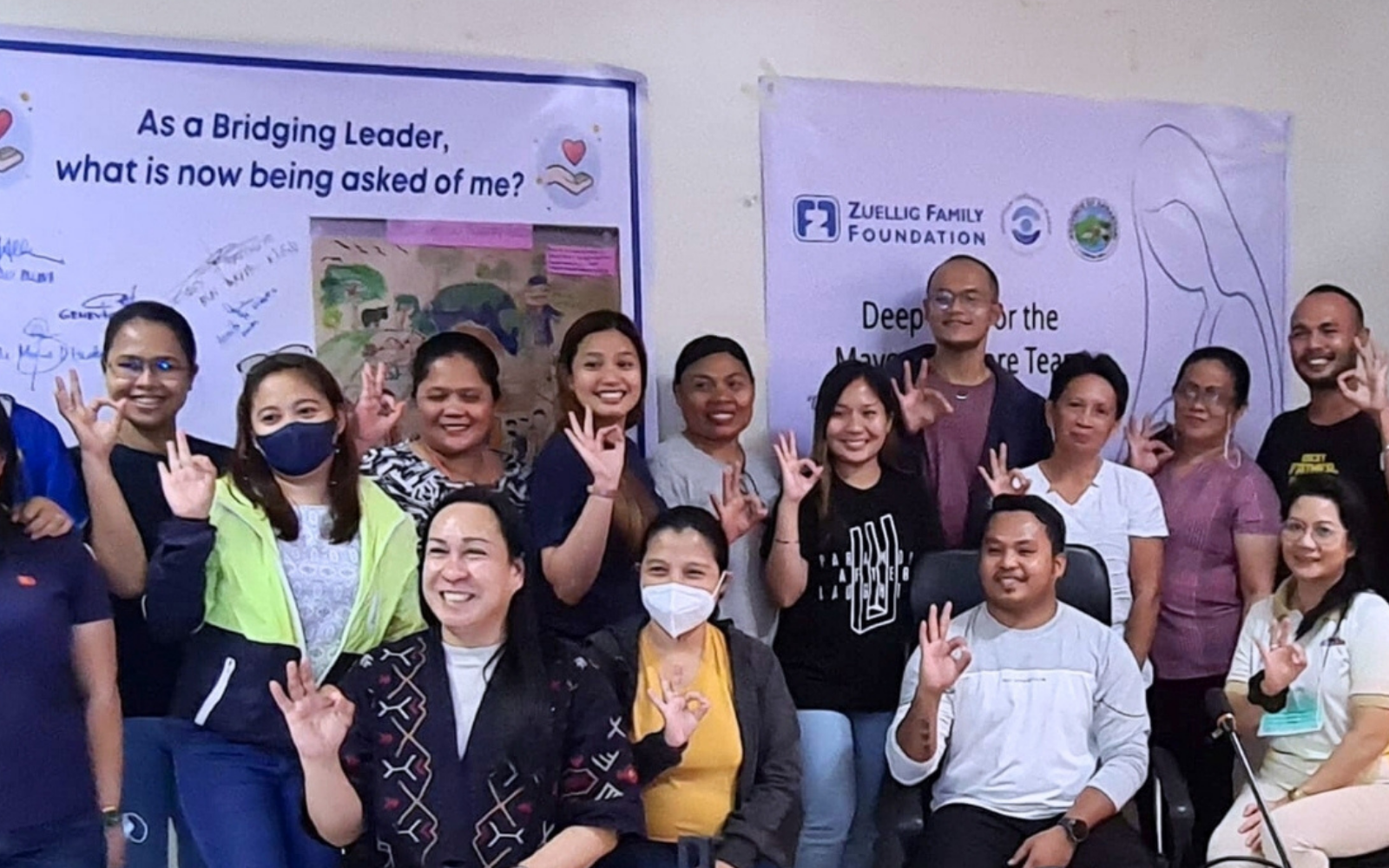
Mayor Zyrex’s journey from a struggling child to a transformative leader shapes his deep empathy for the people he serves. “I know what it’s like for malnourished children,” he reflected. “Many are in poverty, facing struggles I once faced. Three years is not enough to fully realize our vision, but I am hopeful that ZFF will continue to support us.”
Through his dedication and partnership with ZFF, Mayor Zyrex has started laying the groundwork for lasting change in Maasim, making strides toward a healthier and more prosperous future for its children and families.
Focusing on People: ZFF and LGUs Strengthen Nutrition and Health Systems in Surigao del Norte
The Zuellig Family Foundation (ZFF) continues to work alongside the Local Government Units (LGUs) of Del Carmen and San Francisco, Surigao del Norte, under the Department of Environment and Natural Resources’ (DENR) Project TRANSFORM (Transdisciplinary Approach for Resilient and Sustainable Communities). The partnership aims to improve health and nutrition systems as part of building resilience against disruptions like natural disasters and addressing ongoing issues such as hunger and malnutrition.
During the midline assessment validation on November 11-12, 2024, municipal leaders reviewed their progress on the First 1,000 Days (F1KD) nutrition roadmaps. The discussion focused on milestones achieved and remaining gaps in health and nutrition governance, as identified in the past year’s data.
with Mayor Alfredo Coro II, Del Carmen
Mayors Alfredo Coro II of Del Carmen and Val Pinat of San Francisco led the session, highlighting strategies for improving health outcomes based on assessment results. Mayor Coro shared a key insight: “Inuna namin ang social determinants of health and nutrition, dahil paulit-ulit pa rin ang problema kung hindi naka-sentro sa tao ang solusyon.” (“We prioritized the social determinants of health and nutrition because the problems keep recurring if the solutions are not centered on people.”)
with Mayor Val Pinat, San Francisco
The session featured presentations from the Municipal Nutrition Action Officer and the Municipal Agriculturist of Del Carmen, who showcased the Farm-to-Spoon Program. This initiative connects food stability efforts with targeted nutrition interventions, specifically supporting nutritionally at-risk families among farmers and fisherfolk.
Module 2 of the Nutrition and Health Leadership for Resilience learning track as part of the Project TRANSFORM, conducted last November 14-15, 2024, emphasized adaptive leadership and team resilience. With tools for better governance, the module aimed to reinforce good practices that strengthen local nutrition systems, making them more responsive and functional.
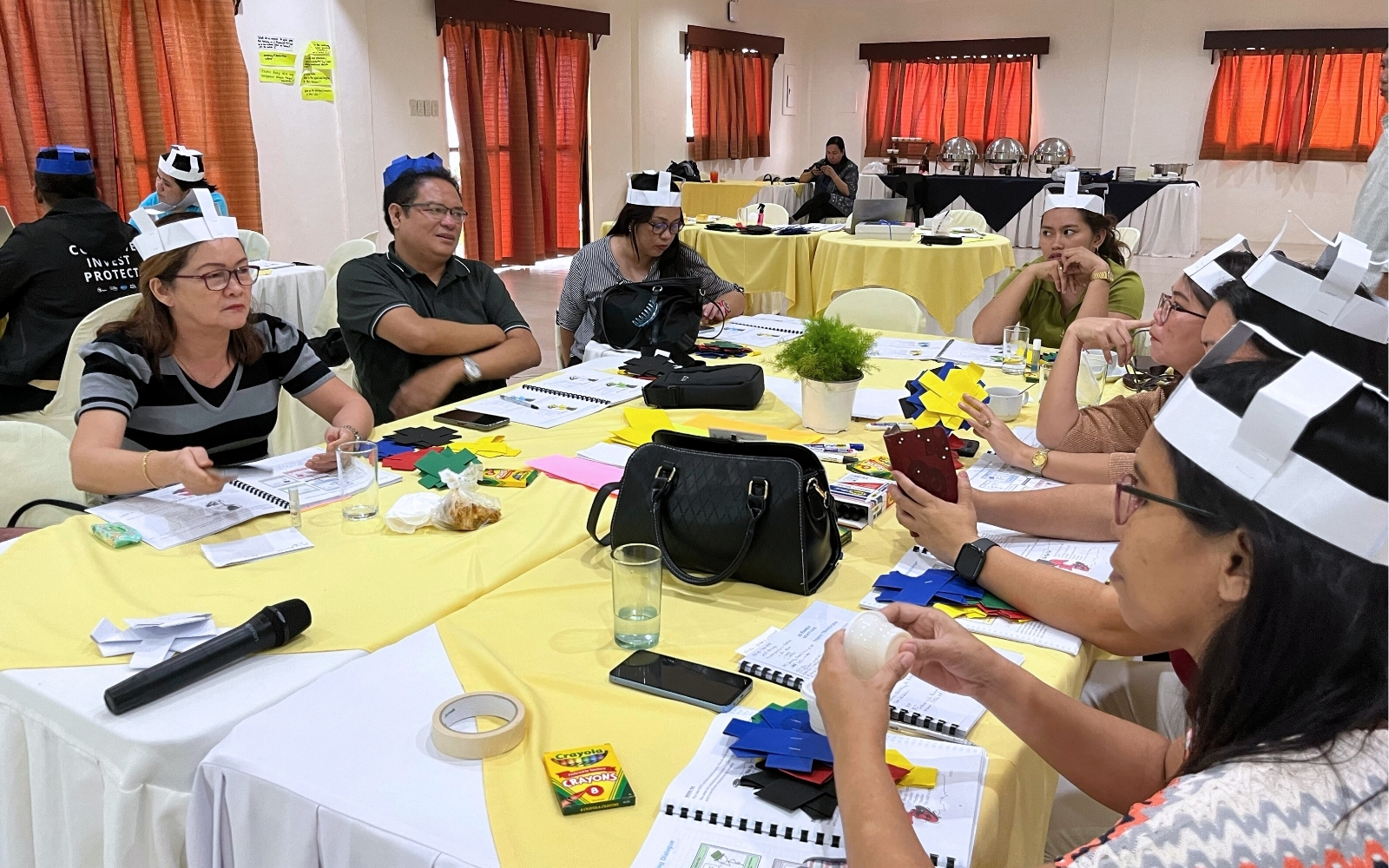
Collaboration with the Provincial Government of Surigao del Norte, the National Nutrition Council of CARAGA, Department of Health (DOH)-Surigao del Norte, and various national and local partners has led to significant progress. Both municipalities have reported improvements in their F1KD nutrition roadmaps, setting a strong foundation for further action against malnutrition.
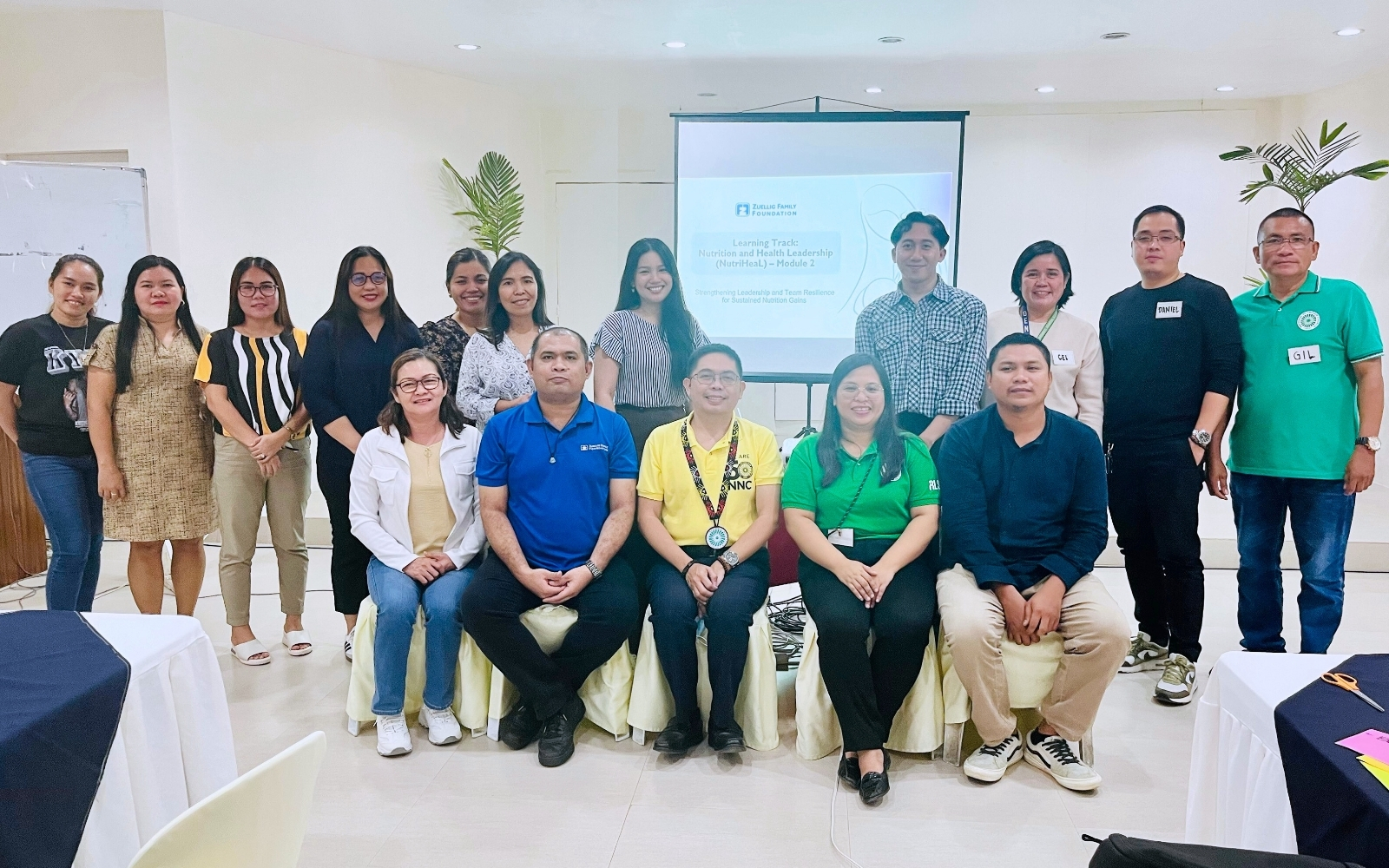
The journey continues, with both LGUs committed to enhancing their health systems and sustaining their gains, even beyond Project TRANSFORM’s timelines.
Building a Healthier Benguet: Integrating Health Information, Financing, and Service Delivery to Achieving Universal Health Care
Author: Dr. Jenilyn Ann Dabu, ZFF LHS Program Manager
The visit by the Zuellig Family Foundation last October 23, 2024 yielded significant insights into the ongoing initiatives aimed at enhancing healthcare delivery in Benguet.
As one of the first four provinces designated as a PhilHealth Health Care Provider Network (HCPN) Demonstration Site, Benguet is focused on translating proof of concepts into practical applications. This initiative seeks to illustrate how comprehensive health system reforms and interconnected policies can effectively establish a functional patient referral system and gatekeeping mechanisms, all supported by pooled financial arrangements.
Dr. Meliarazon Dulay, the Provincial Health Officer II, emphasized that the successful implementation of these reforms hinges on three key elements: robust data on population health needs through an integrated health information system, effective public health financial management, and a seamless patient referral system that guarantees continuity of care. These components are essential in creating a healthcare environment that is responsive to the needs of the community.
The establishment of the HCPN Demonstration Site resonates strongly with the findings of The Lancet Global Health Commission on Financing Primary Health Care (2022).1 Both emphasize the critical importance of comprehensive health system reforms and the need for effective financing mechanisms to ensure equitable access to quality healthcare services.
The Lancet Commission highlights that primary health care (PHC) is fundamental to achieving Universal Health Care (UHC), yet many health systems, especially in low- and middle-income countries (LMICs), face challenges. These include insufficient public funding, inequitable access to services, and a reliance on out-of-pocket payments that can deter individuals from seeking necessary care. This mirrors the situation in Benguet, where the provincial health board is actively working to address these very issues through its HCPN initiative.
Integrating health information system
One of the key recommendations from The Lancet Commission is the need for robust data systems to inform health financing and service delivery decisions. In Benguet, Dr. Meliarazon Dulay stressed the importance of having good data on population health needs through an integrated health information system. This aligns with the assertion that effective financing arrangements must be underpinned by accurate data to allocate resources efficiently and equitably. The ability to collect and analyze health data allows for better identification of community needs, enabling healthcare providers to tailor services accordingly. This not only improves patient outcomes but also ensures that financial resources are directed where they are most needed, a principle strongly advocated by Dr. Dulay.
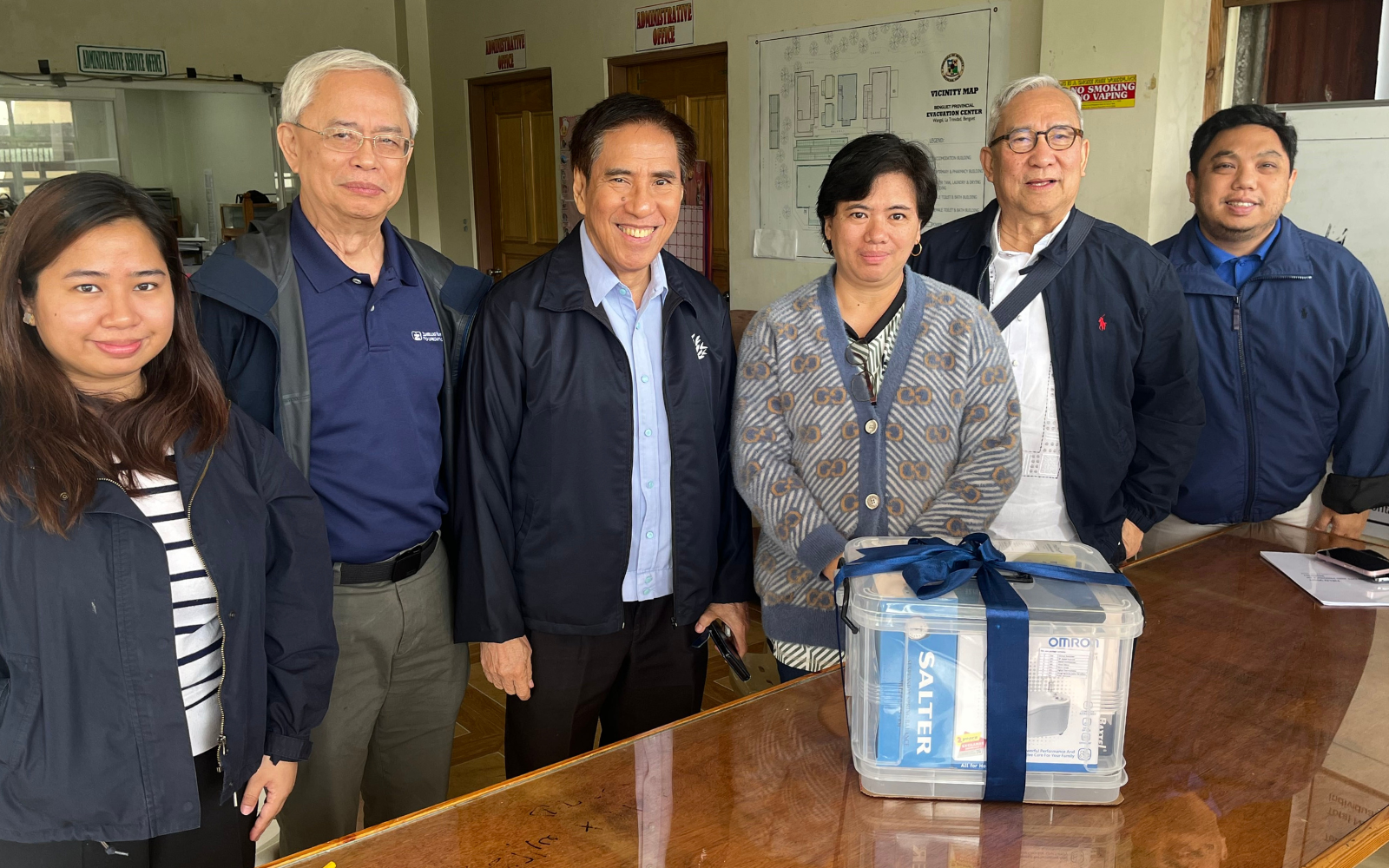
Effective Public Health Financial Management
With the devolved health functions, the HCPN demonstration initiatives are aimed at financial integration through operationalizing the Special Health Fund. Multiple funding flows, fragmented budgeting processes, and the need for decisions about the allocation of these funds between health and other sectors from municipal to provincial can be consolidated in local health funds. However, these priorities are prone to diverge between political and technical aspects, hence, key implementers like the provincial health officers, should have a strong grasp on budget formulation processes and budget execution. The former entails program budget, budget rules and allocations, and conditional grants. Whereas the latter covers policy on resource allocation formula, provider payments, contracting and monitoring, facility funding, and benefit specification.
As shared by Dr. Dulay, they are now in the process of finalizing next year’s financing health plans with the municipalities. Effective public health financial management reflects this need for sustainable funding models. By ensuring that financial resources are allocated strategically and protected as they flow through the system, Benguet aims to create a more resilient healthcare financing model that aligns with the principles outlined in the UHC law.
Seamless Patient Referral Systems
The establishment of a functional patient referral system is a crucial element emphasized in the HCPN initiative to achieve the goals of UHC. In Benguet, the objective is to create well-defined pathways for patient referrals among primary care facilities, rural health units (RHUs), Benguet General Hospital, and apex hospitals such as Baguio General Hospital and Medical Center, thereby forming a comprehensive healthcare provider network. This network may include private, public, or mixed healthcare providers and will be overseen by a managing board funded through pooled financial resources. The seamless referral process not only improves continuity of care but also helps identify methods to deliver healthcare services, goods, and interventions in a packaged manner.
The initiatives currently being implemented in Benguet demonstrate how local governments can align their healthcare reforms with a people-centered, multi-stakeholder approach. By prioritizing integrated data systems, effective financial management, streamlined referral processes, and equitable access to services, Benguet is making significant strides toward developing a more inclusive and efficient healthcare system. Achieving UHC requires not only sufficient funding but also a commitment to reforming existing systems to better serve the needs of all individuals within the community. The lessons learned from the experiences in Benguet can offer valuable insights for other provinces aiming to enhance their primary healthcare systems in line with UHC objectives.
—
1 Hanson, K., Brikci, N., Erlangga, D., Alebachew, A., De Allegri, M., Balabanova, D., … & Wurie, H. (2022). The Lancet Global Health Commission on financing primary health care: putting people at the centre. Lancet Global Health, 10(5), e715-e772.
Not One More Death Due to Malnutrition: Mayor George Falgui of Kiamba
In August 2022, just over a month into his term, Mayor George Falgui first learned about the serious nutrition issues in Kiamba, Sarangani. As a first-time mayor, he did not expect the extent of the problem.
During Zuellig Family Foundation (ZFF)’s Municipal Nutrition Governance Program (MNGP) training, Dr. Arvin Alejandro, the Provincial Nutrition Action Officer, presented a health report. The report shocked Mayor Falgui—1,668 children in his town were stunted, meaning their growth was permanently affected by malnutrition. Kiamba had the third highest stunting rate in Region 12, at 22.54%.
One story that stuck with him was about a girl named ‘Shiela’. She was two and a half years old, severely underweight, and stunted. Though she received treatment for pneumonia, her family was too poor to sustain her nutrition needs. Sadly, Shiela died in 2020. “During her treatment, everything appeared to be going well for her, but then she acquired aspiration pneumonia,” Dr. Alejandro shared. Two of her nine siblings had already died from malnutrition. This hit home for Mayor Falgui—Kiamba’s health system had to do more, and fast.
The Challenge of Kiamba
Kiamba, a town of about 65,774 people, is in Sarangani, bordered by mountains and the sea. This makes accessing health services difficult. Most people depend on farming, but poverty remains high. Nearly a third of the population belongs to Indigenous groups, while the rest of the population are an intricate mix of languages and cultures. Only two out of 19 barangays are considered geographically isolated, but many areas still lack access to basic services due to the tough terrain.
In 2022, Mayor Falgui faced an uphill battle in his election. But his background in veterinary medicine and work in sales taught him the value of persistence. “I ran in the elections with no sufficient funds; my greatest capital was goodness to the people—especially the unwanted or neglected ones.”
As a mayor, he decided to open his leadership to new partnerships, especially in health and nutrition. He quickly embraced ZFF’s Nutrition Governance Program, hoping to tackle Kiamba’s malnutrition problem head-on.
A Deep Dive into the Problem
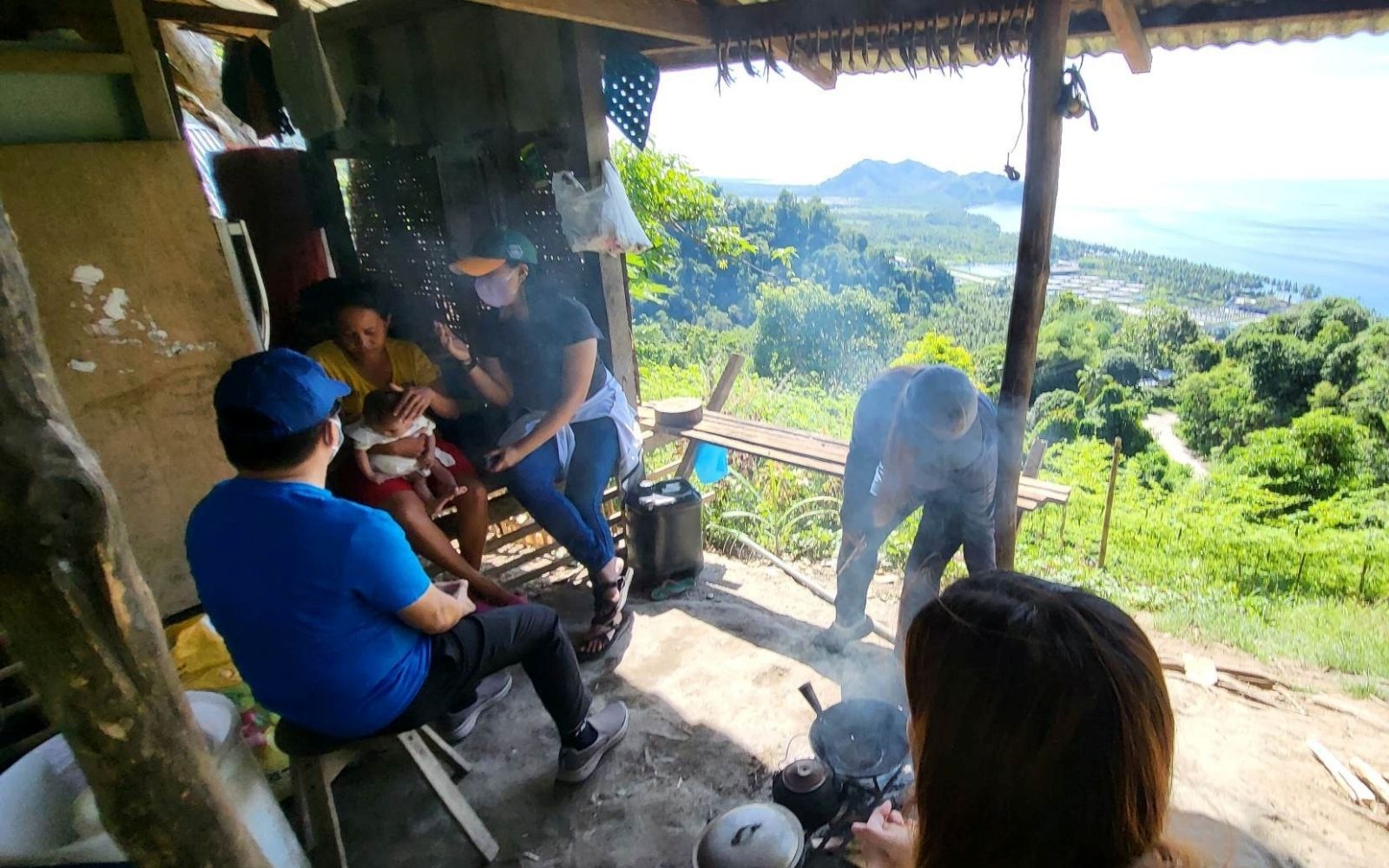
In November 2022, Mayor Falgui and his team participated in a Deep Dive activity, a guided community immersion, facilitated by ZFF. During the Deep Dive, they met ‘Nico’, an eight-month-old boy living in an isolated area. Nico weighed only 4.5 kilograms—severely underweight and stunted. His family lived on a meager income of 3,000 pesos per month, and his siblings were barely surviving.
This experience drove home the urgency of the situation for Mayor Falgui. Nutrition could not be seen as just a health issue; it was a community-wide problem that needed every sector’s involvement. The Deep Dive inspired a new push to track and support malnourished children and at-risk mothers.
Taking Action
Mayor Falgui and his team began focusing on three key areas: leadership, human resources, and financing. They strengthened collaboration between the executive and legislative branches, with the mayor appointing Dr. Antonio Yasaña, a former provincial health officer, to lead the town’s nutrition efforts.
They created a Municipal Nutrition Action Officer (MNAO) position to provide more focus on the problem. Mayor Falgui also oversaw the increase in the town’s nutrition budget from just 1 million pesos to nearly 10 million in 2023.
The mayor appointed Ronilyne Grace Moneva, a registered nurse with experience in nutrition, for the position of MNAO. Under her leadership, nutrition efforts accelerated. All barangays developed nutrition action plans, secured funding for projects, and formed Barangay Nutrition Councils.
Kiamba also held a three-day Nutrition Summit in October 2023, gathering barangay leaders and nutrition workers. The mayor laid out his vision and got barangays to develop their own nutrition plans, linking them to the municipality’s larger goals.
Interventions for Change
Kiamba’s approach became multi-sectoral. The Agriculture Office prioritized providing chickens and vegetable gardening kits to families with malnourished children, giving them access to a stable protein source. The Social Welfare Office involved families in the ‘Cash for Work’ program, helping them earn a living while contributing to public works.
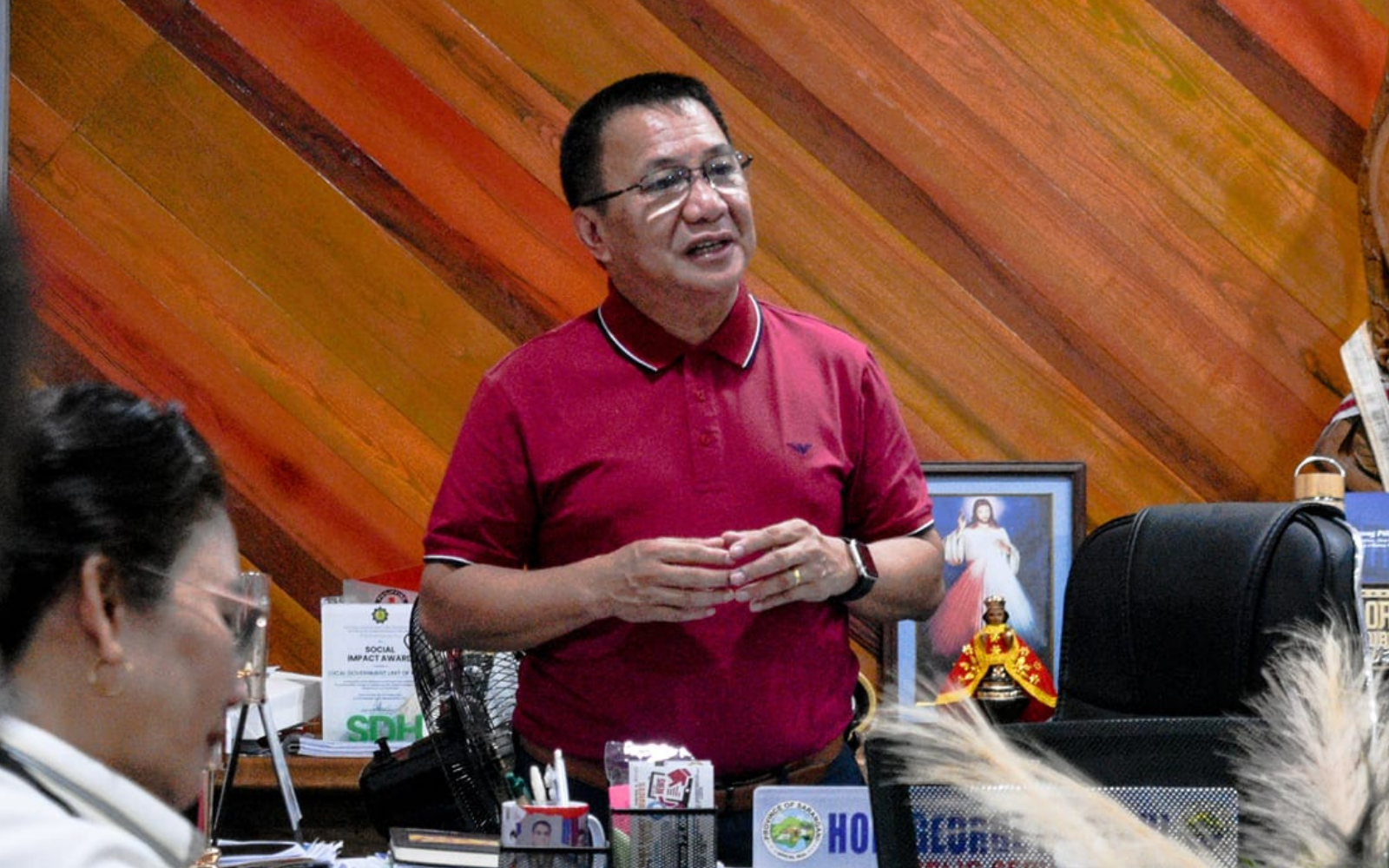
In 2023, Kiamba was selected as one of 275 municipalities for the World Bank-funded Philippine Multisectoral Nutrition Project (PMNP). This brought additional resources for nutrition, including medical equipment, new staff, and more community support. During the PMNP Mayors Forum, Mayor Falgui shared, “Without ZFF, I wouldn’t have realized that my leadership is crucial in driving impact—not just in terms of numbers, but in saving every life at stake against malnutrition.”
Hope for the Future
Kiamba saw its stunting rate drop from 22.54% in 2018 to 8.34% in 2023 and 6.96% in 2024. But Mayor Falgui isn’t satisfied yet. He’s committed to bringing the number down even more. Among the ongoing initiatives is the Triple A+ Kiamba Cares project, which has been a catalyst of behavior changes in food, health, and sanitation among the Kiambahanons.
“Though we still have red flags, our goal is to minimize them as much as possible,” he said.
With continued efforts from all sectors, Kiamba is hopeful that there will be no more deaths like Shiela’s.
Navigating Challenges and Opportunities to Improve Health and Nutrition in Tabuan Lasa, Basilan
On September 25, 2024, Zuellig Family Foundation (ZFF) President Austere Panadero and Board of Trustees member Dr. Manuel Dayrit, and guest Dr. Jaemin Park, accompanied by Basilan Provincial Administrator Manny Muarip, Provincial Health Officer Dr. Sharifa Ann Abbas, Provincial Nutrition Action Officer Nadzwa Sabandal, and Alex Cotales of the Provincial Agriculture Office, visited the municipality of Tabuan Lasa, one of the five ZFF Municipal Nutrition Governance Program (MNGP) expansion areas in Basilan.
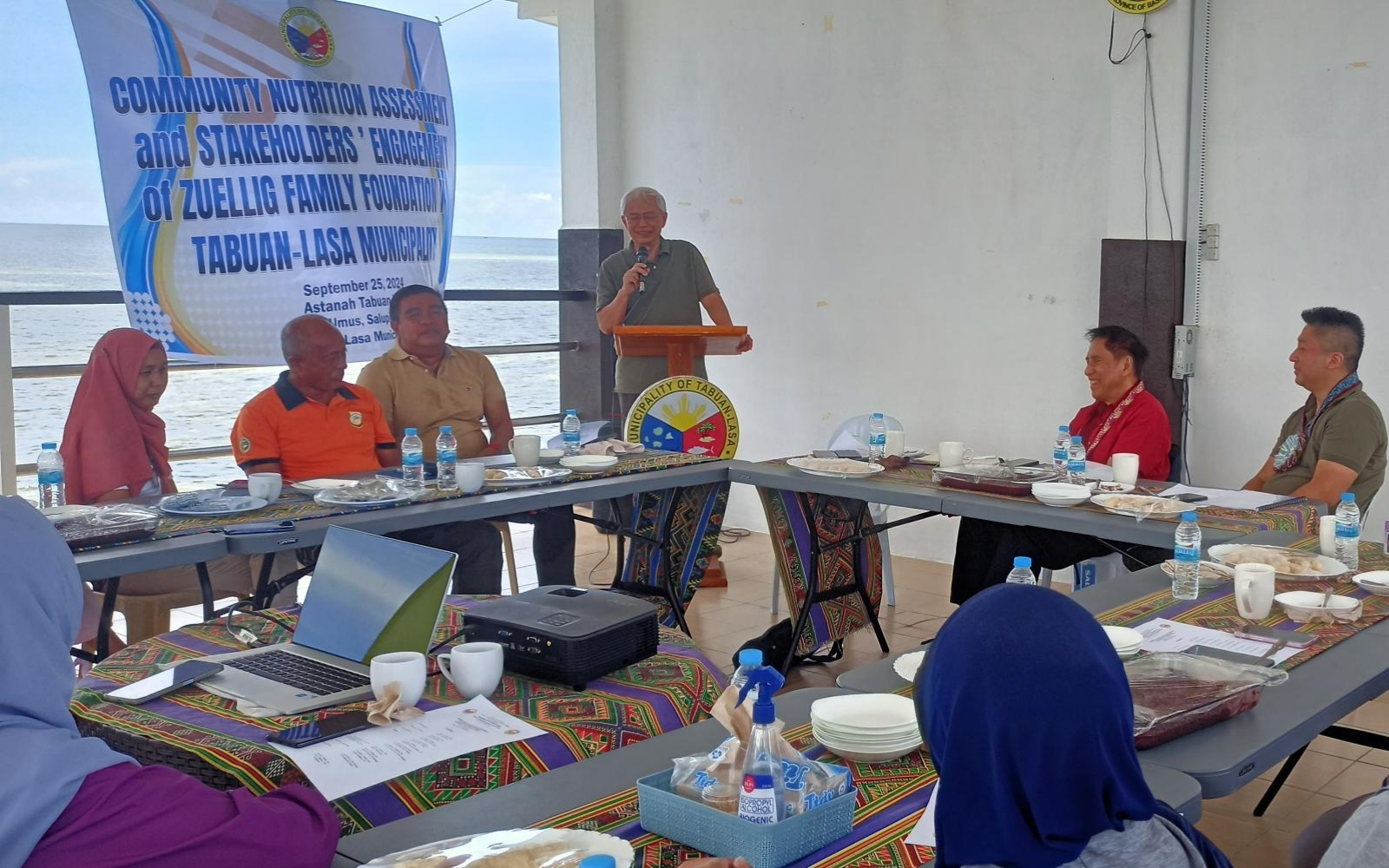
Tabuan Lasa, along with six other municipalities, was established in 2006 when Basilan was part of the defunct Autonomous Region in Muslim Mindanao (ARMM). Its name, Tabuan Lasa, was derived from its four major islands: Tapiantana, Bubuan, Lanawan, and Saluping. In the Tausug dialect, Tabuan Lasa means “Market of Love.” The municipality comprises 12 barangays and has a population of nearly thirty thousand, predominantly made up of ethnic groups, including Yakan, Tausug, Sama, and Badjao, with a notable mobile population.
Despite its rich cultural diversity, Tabuan Lasa faces significant challenges. It ranks first in stunting rates, is among the top five in wasting, and has some of the lowest health indicators in the province. Local leaders attribute these alarming statistics to deeply entrenched cultural beliefs and practices that affect early child care and discourage effective health-seeking behaviors within the community.
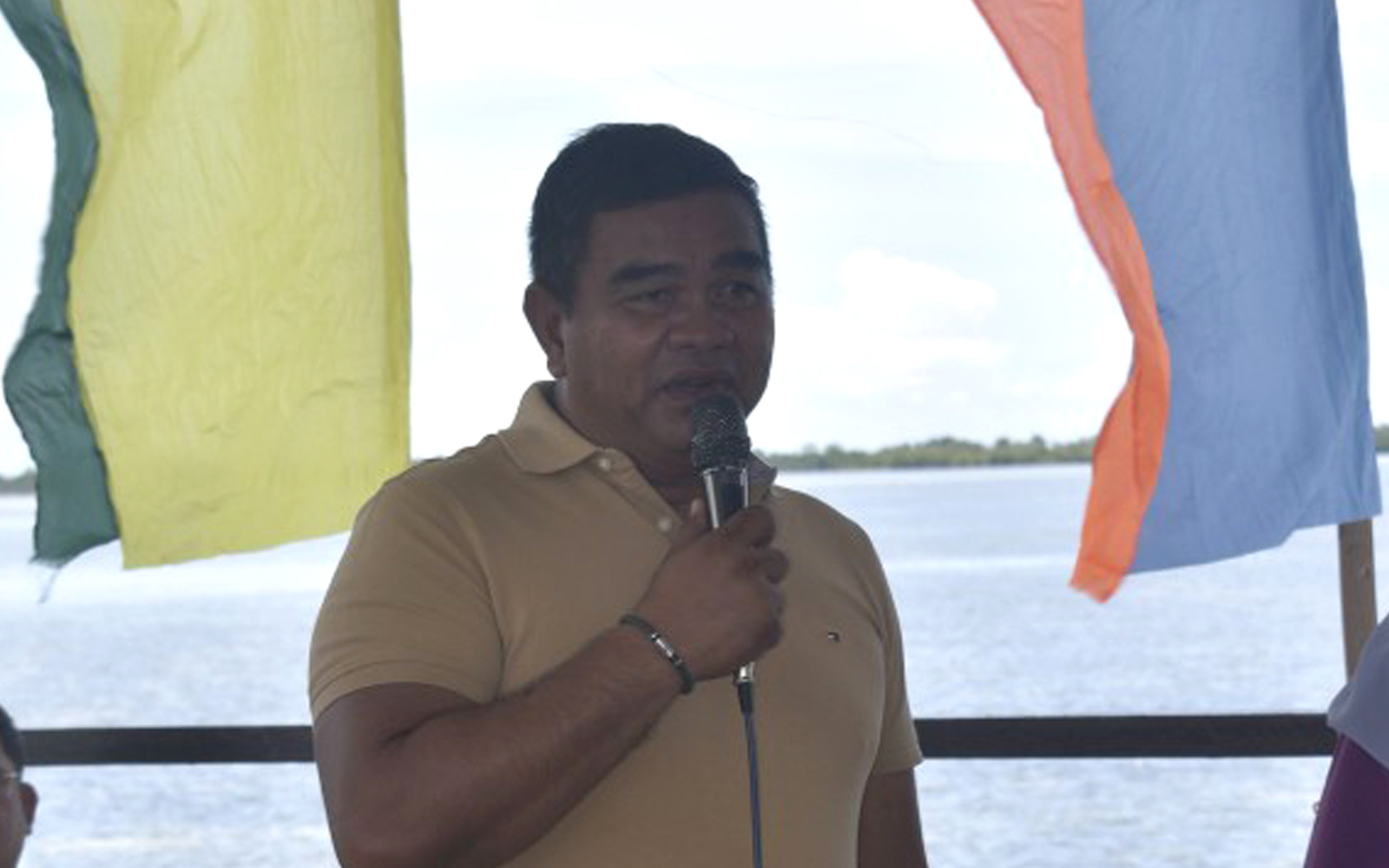
In his welcome remarks, Mayor Moner Manisan expressed his appreciation for ZFF’s visit. He shared how his involvement in MNGP has heightened his awareness of the health and nutrition challenges in his municipality. Mayor Manisan is committed to leading his MNGP team in exploring barriers to health improvement and addressing them effectively. “Ginagawa namin ang lahat, subalit kinkailangang paigtingin ang pag tutulungan.”(We are doing everything, but collaboration needs to be intensified.)
In just three months since joining MNGP, the team has set ambitious goals: enhancing the capacity of health and nutrition workers, intensifying targeted health communication campaigns to improve health-seeking behavior and promote basic health services, fostering collaboration among line agencies, and integrating nutrition programs with the Pantawid Pamilyang Pilipino Program (4Ps) and other social protection initiatives in the municipality.
Eager to improve health services in his municipality, Mayor Manisan has recently recruited a new doctor, a Doctor to the Barrio (DTTB), whom he also designated as the Municipal Health Officer (MHO). Although a position for MHO has existed in the plantilla, there have been no takers for years. Moreover, Tabuan Lasa is well-equipped with health facilities and personnel; all barangays have health stations manned by a midwife, supported by 112 BHWs, and every barangay has at least one Barangay Nutrition Scholar (BNS). The presence of the MHO will also facilitate PhilHealth accreditation of health facilities and boost health financing and program implementation.
During the visit, members of the MNGP team and other department heads were also present, fostering a collaborative atmosphere. Cotales distributed vegetable seeds and fertilizers, which will primarily benefit families with Nutritionally at Risk (NAR) and First 1,000 Days (F1KD) populations.
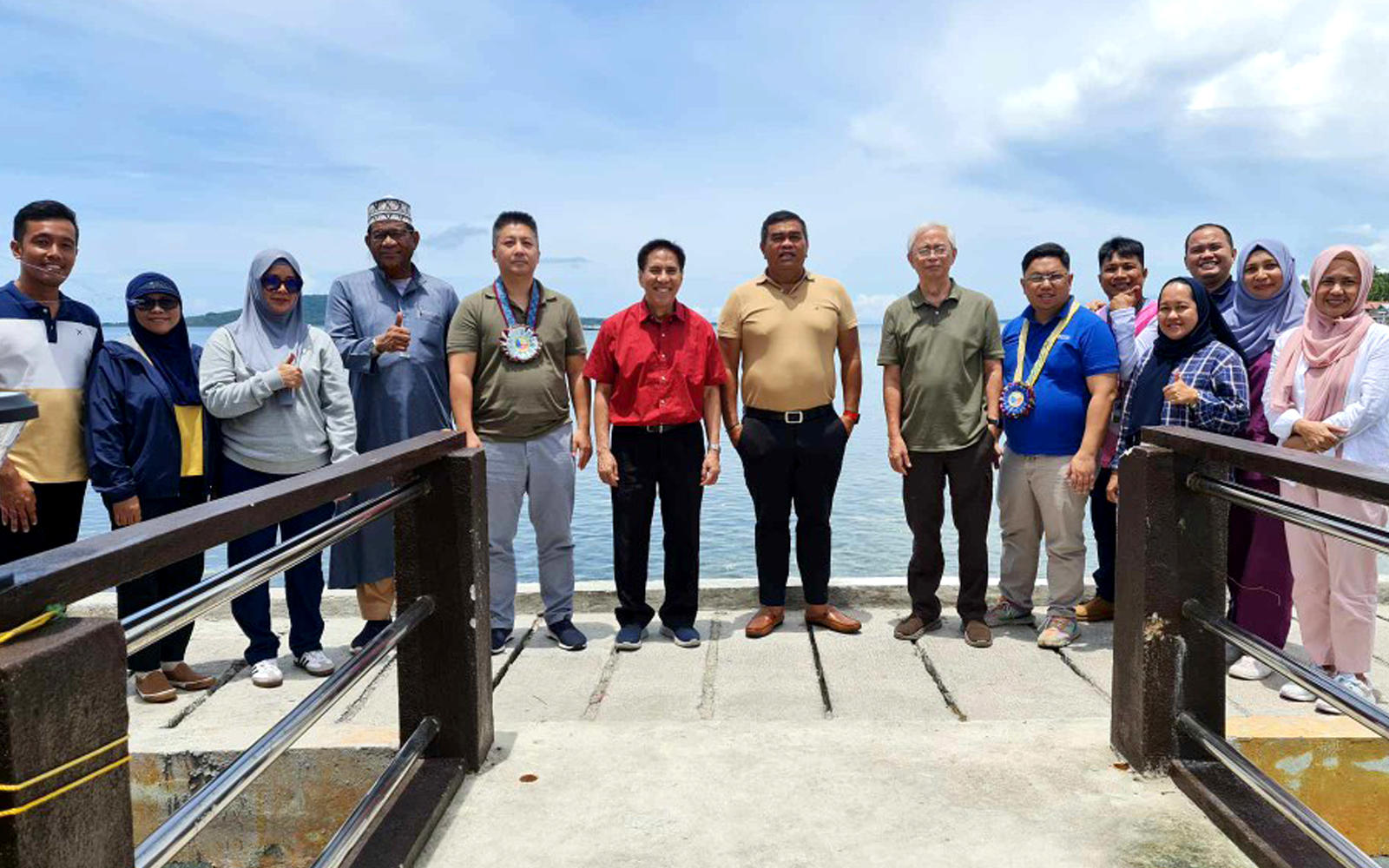
Through concerted efforts and collaborative strategies, Tabuan Lasa is poised to make strides in improving health and nutrition outcomes for its constituents.
Health Leadership in Action: Dr. Hydee Salao’s UHC Success in CAR
Dr. Hydee Salao’s public health career began when she was a Medical Officer at Barlig District Hospital in the Mountain Province, but it was her role as a Municipal Health Officer (MHO) at the Rural Health Unit of Barlig that truly exposed her to the harsh realities of public health.
The lack of access in Geographically Isolated and Disadvantaged Areas (GIDA), where patients often arrived late for treatment due to the long distances they had to travel, and the lack of funds to fulfill their healthcare needs was starkly evident. “Most patients would have common illnesses; however, because of the lack of funds or health facilities, when they get to the district hospital, their condition becomes worse,” Dr. Salao shares. The consumption of alcohol leading to lifestyle diseases was particularly prevalent. As one of the few doctors in the area, she had to rely on her skills and ingenuity to provide care, often facing the challenge of stabilizing patients and referring them to higher-level facilities due to limited resources.
Dr. Salao took the post of MHO briefly, where she faced the daunting task of managing the rural health unit with a meager budget of only Php 10,000. This experience underscored the need for sufficient funding and resources to deliver adequate healthcare services. She recalls, “I would often wonder how I could convince the patients and their families to bring the patient to a higher-level facility when they were limited in terms of resources. At times, I would find a way to transfer the patients.”
Lessons from Stakeholder Engagement
The transition from MHO to adjunct faculty, working alongside development partners, allowed her to gain valuable lessons in working with local chief executives on health leadership and governance. Later, her work with the regional DOH equipped her with a diverse skill set and a deep understanding of health disparities, fueling her passion for addressing them.
As an adjunct faculty member during the Municipal Leadership and Governance Program (MLGP), her experience and insights proved invaluable in her work. Focused on improving health indicators at the municipal level through engaged local stakeholders, the MLGP showcased her foresight and commitment to empowering local government units (LGUs). She spearheaded programs offering leadership development at all levels, from regional to barangay, ensuring a holistic approach that involved all stakeholders, including finance officers and local legislators.
Making a Universal Impact
With the passage of the UHC law, a comprehensive healthcare reform that provides healthcare access and inclusion in PhilHealth for all Filipinos regardless of financial capabilities, Dr. Salao was assigned as the UHC Coordinator for the Cordillera Administrative Region (CAR). Her dedication to this cause was unwavering. Her experience came into play as she took on facilitating UHC implementation in the region.
“The whole concept of UHC is the most challenging,” Dr. Salao states. “How do we convince crucial stakeholders to accept the implementation? How do we make them feel ownership in implementing the UHC? Quality health service delivery means strengthening healthcare facilities, which is crucial to bringing UHC to fruition.”
One of Dr. Salao’s notable achievements was the successful integration of UHC in CAR. Her approach involved building relationships with provincial leaders, understanding their unique leadership styles, and empowering Provincial Health Team Leaders (PHTLs) to serve as technical experts and coaches. This strategy fostered collaboration and trust, leading to a more effective implementation of UHC initiatives.
The UHC law has significantly impacted healthcare in CAR, improving access to services and reducing financial barriers. Under Dr. Salao’s guidance, the region witnessed tangible improvements in healthcare delivery. She emphasized the importance of data-driven decision-making and the need to understand the unique challenges of LGUs. This approach has led to more effective and efficient healthcare in the region.
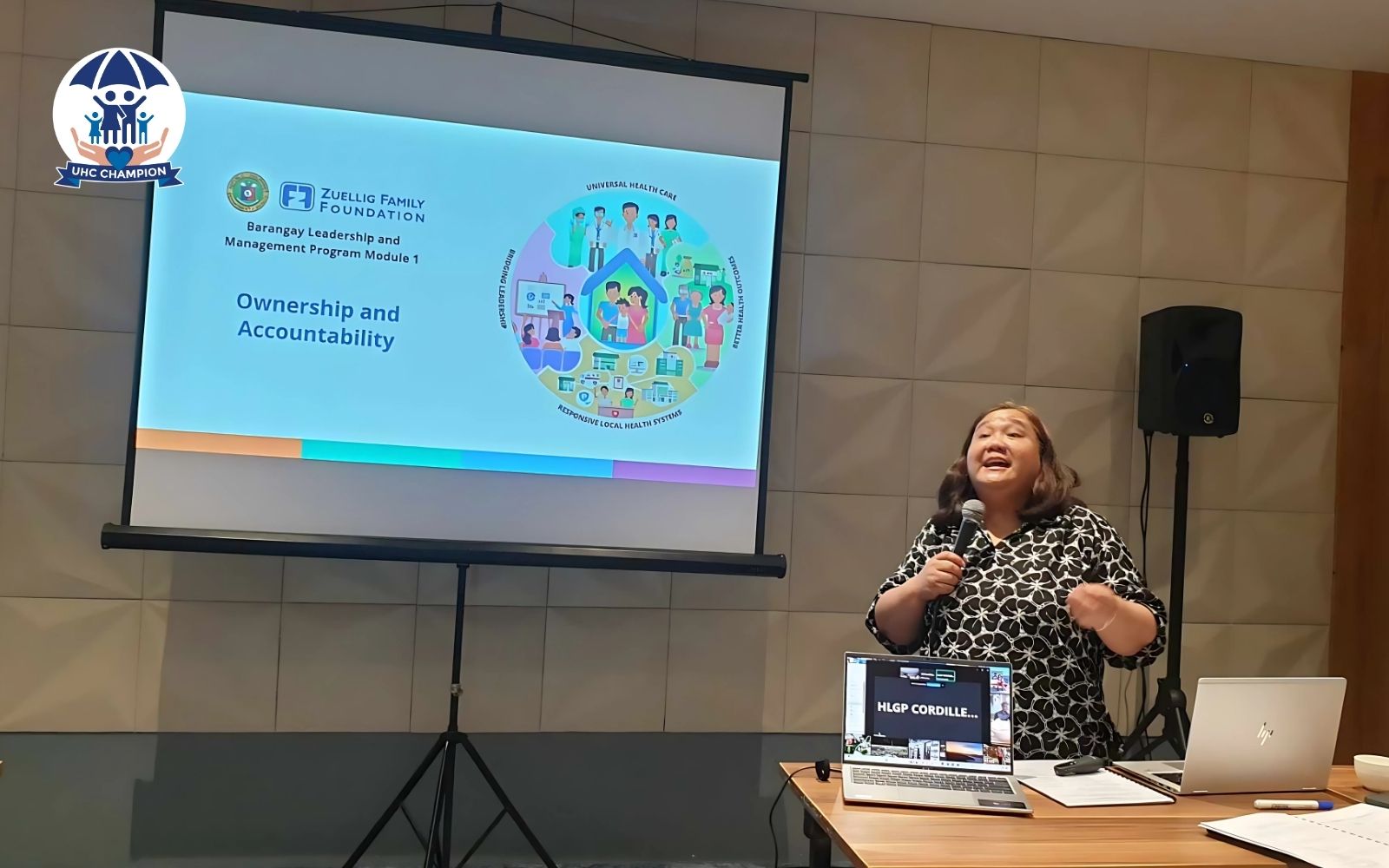
Fundamental Lessons in Change Management
Effective change management requires being grounded. Regional leaders must listen to those on the ground to create responsive programs, ensuring co-ownership and success. This approach was evident in the Bayang Malusog Leadership Development Program (LDP) of the Zuellig Family Foundation (ZFF). This program focuses on health financing and primary care. Voluntary participation led to high engagement, addressing knowledge gaps in these areas and improving healthcare delivery in the Cordillera region.
Strengthening internal capacities by harmonizing UHC interventions and team-based provincial monitoring proved effective. Continuous learning and content mastery are crucial for providing better technical assistance. Dr. Salao and her team revisited UHC policies and other regions’ experiences to redesign their technical assistance for better responsiveness.
Through the Bayang Malusog program, regional leaders and PHTLs gained a better orientation on UHC, enabling them to understand their roles in its implementation. The program has significantly impacted healthcare in the region, improving health financing and primary care.
During the Provincial Leadership Development Program (PLDP) and technical sessions, onboarding accountants and non-health members ensured comprehensive participation and understanding. This program has been instrumental in building the capacity of local health leaders and improving healthcare delivery in the region.
Dr. Salao’s leadership is most evident in her willingness to address her team’s synergy challenges. Despite their high productivity and efficiency, trust among team members needed to be built. She saw the need for staff development and fostering a growth mindset, even though most health workers are job order employees rather than permanent hires. Dr. Salao took it upon herself to train and coach her team, encouraging division chiefs to do the same, empowering their staff by entrusting them with responsibilities.
Finding Purpose as a True UHC Champion
Dr. Hydee Salao’s contributions to healthcare in the Philippines, particularly in facilitating UHC implementation in CAR, have been transformative. Her dedication to improving health systems, innovative approach to leadership development, and ability to foster collaboration among stakeholders have made her a true champion of universal healthcare. With continued support from partners like ZFF, Dr. Salao’s vision of accessible and quality healthcare for all Filipinos is a promising reality. She continues to serve not just in her capacity as UHC Coordinator, but as an inspiration for all healthcare professionals. She says, “I realized that we have a huge responsibility to the public; we want everyone to benefit from healthcare and improve their lives. Little by little, one by one, people are being convinced to join the cause.”
